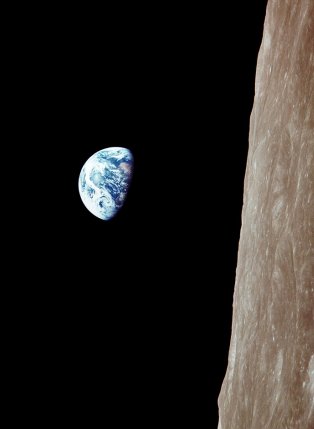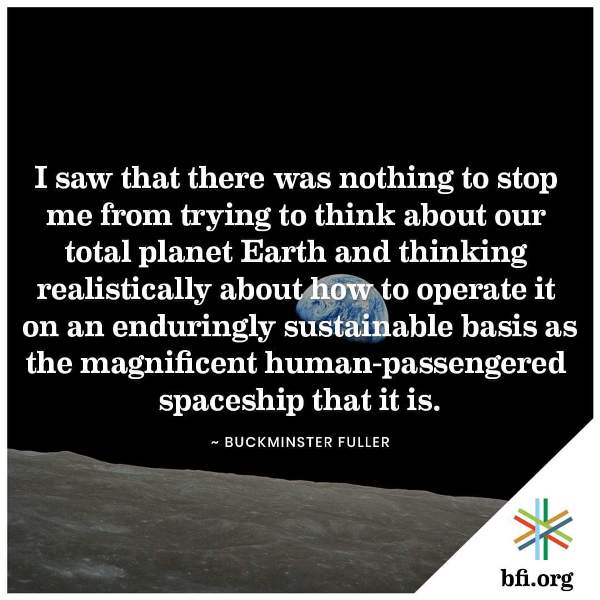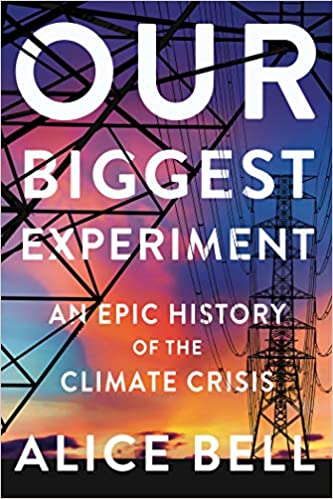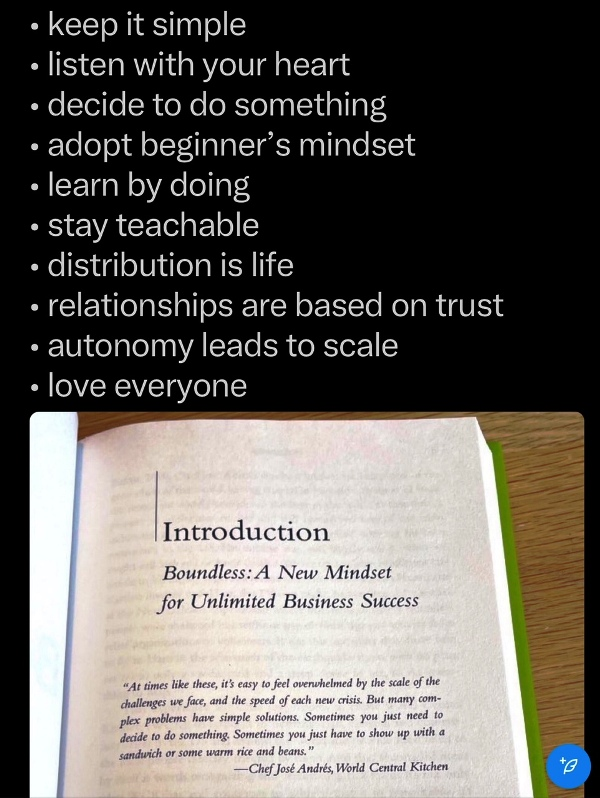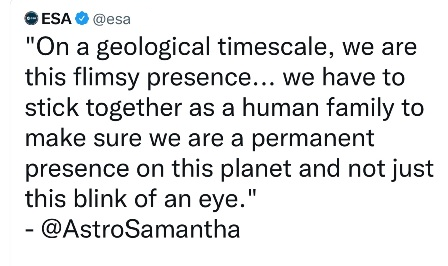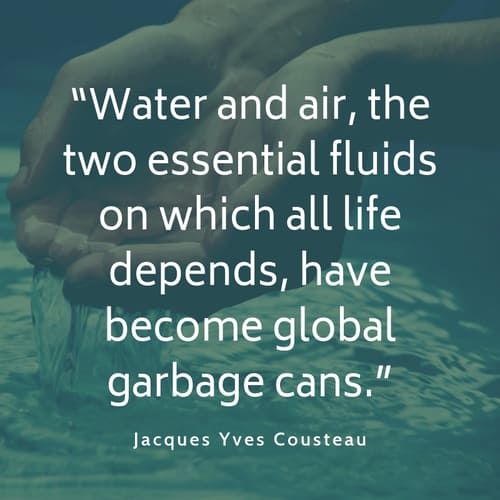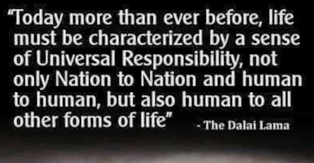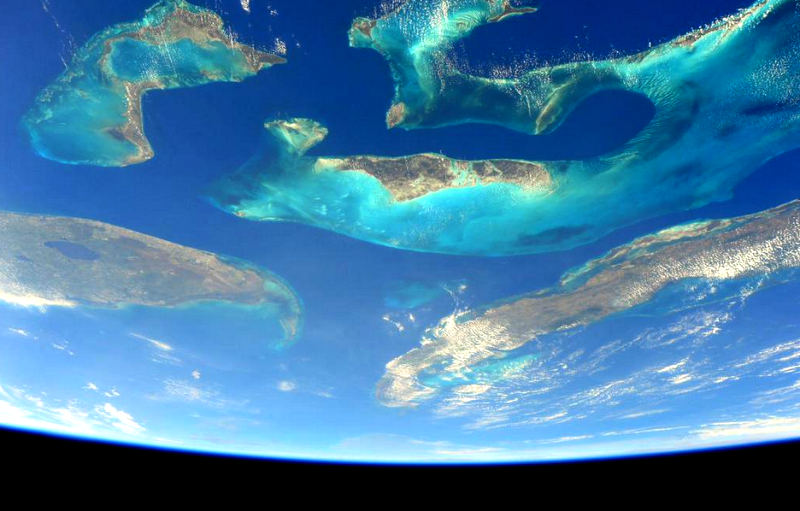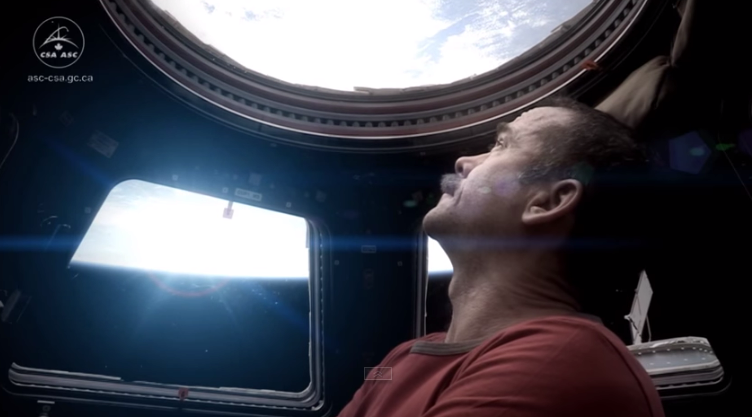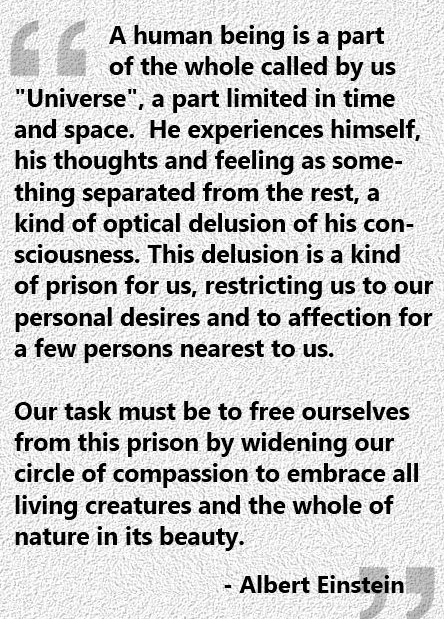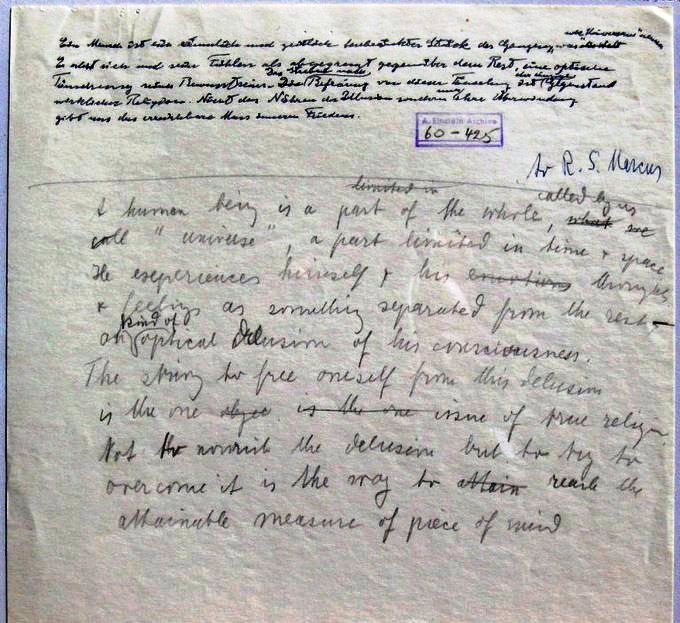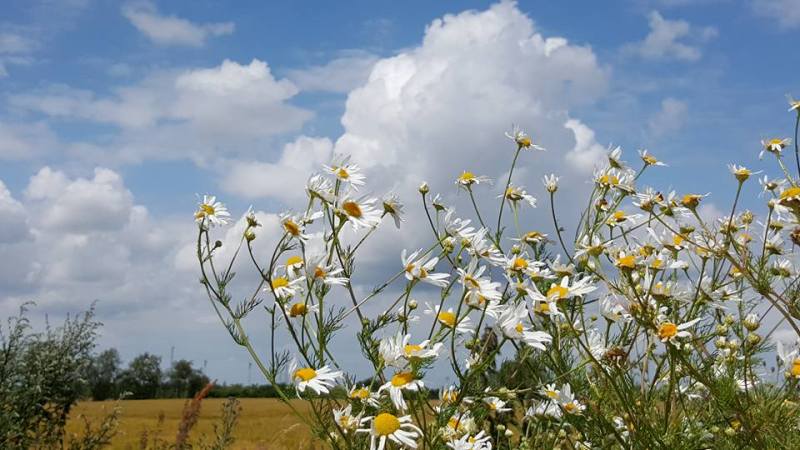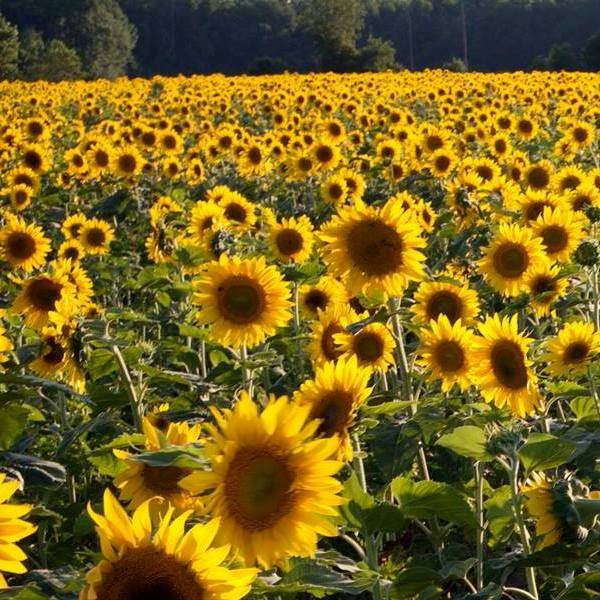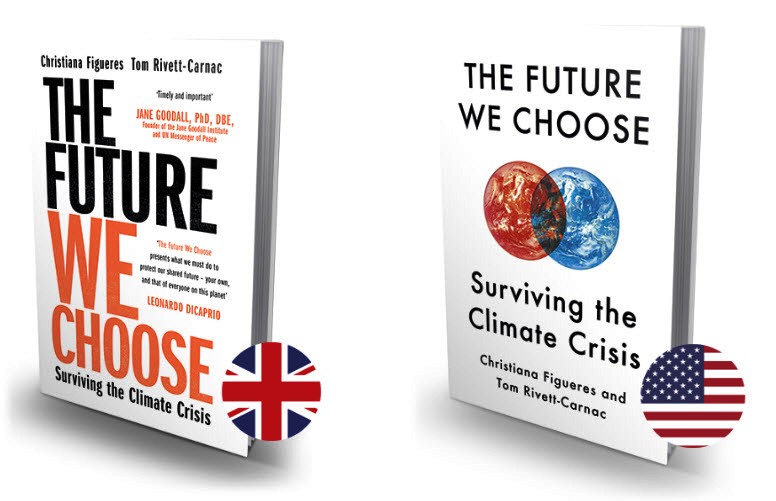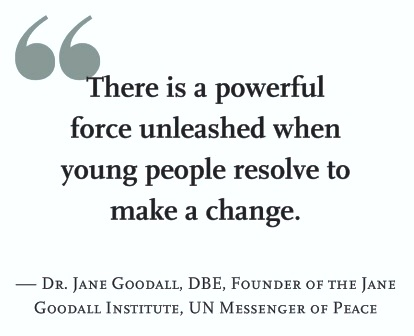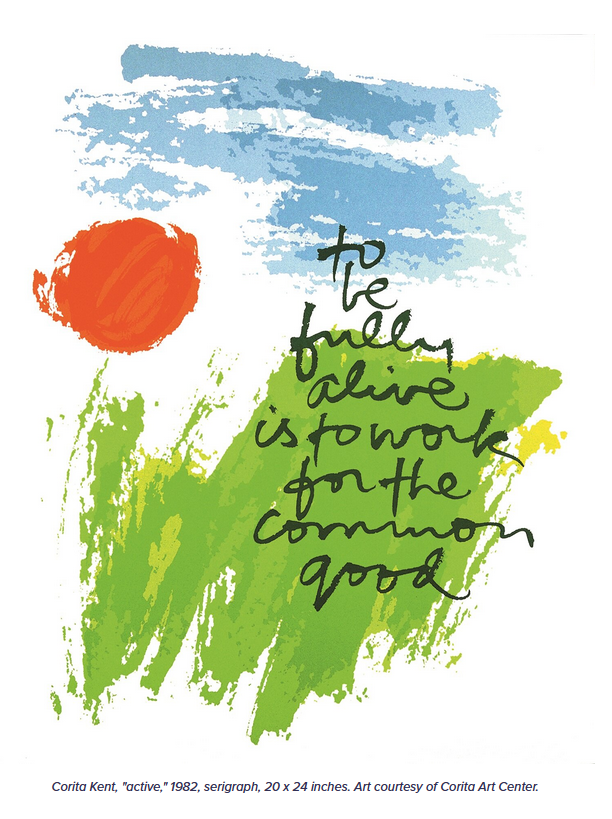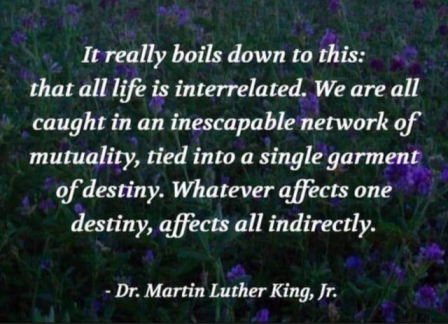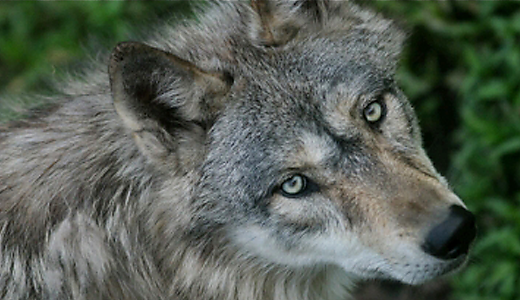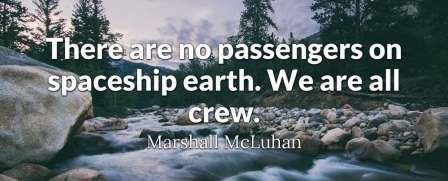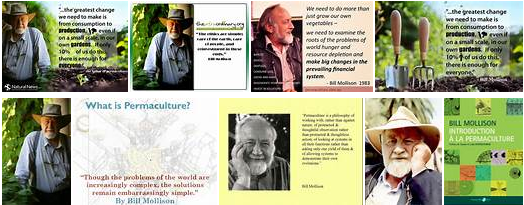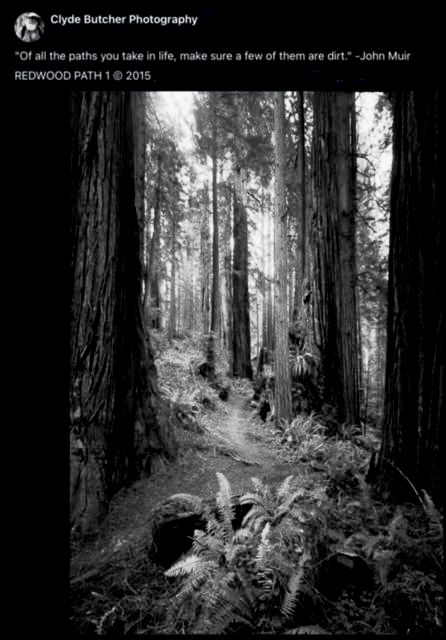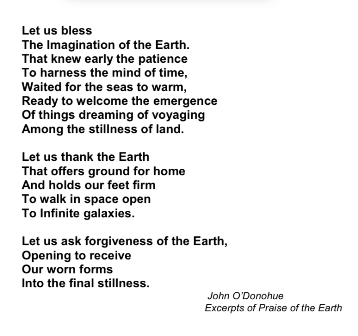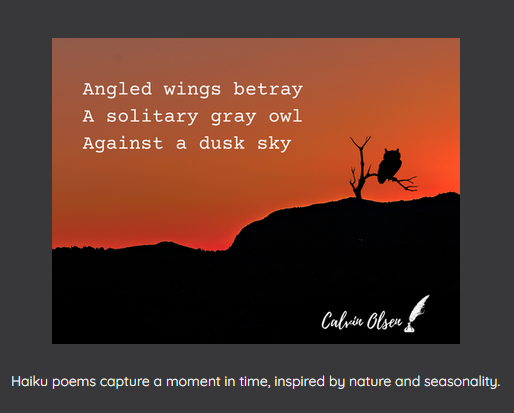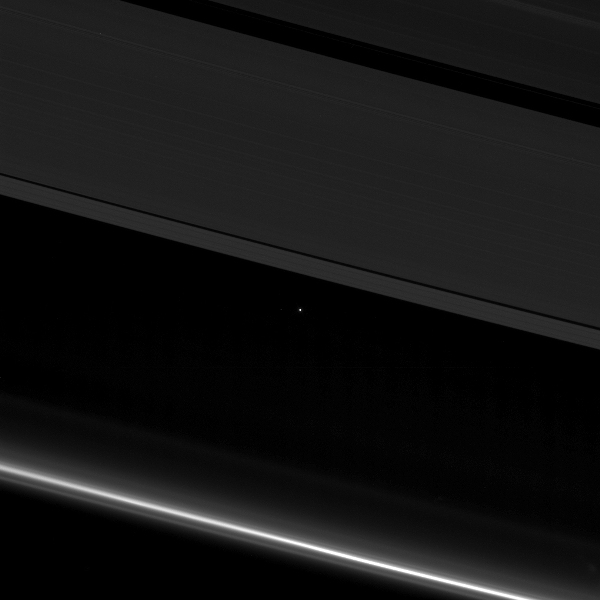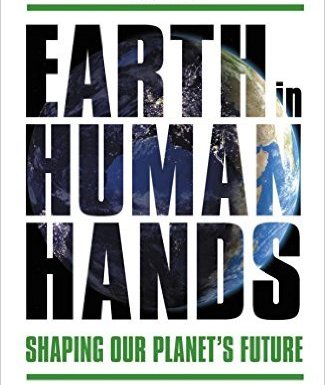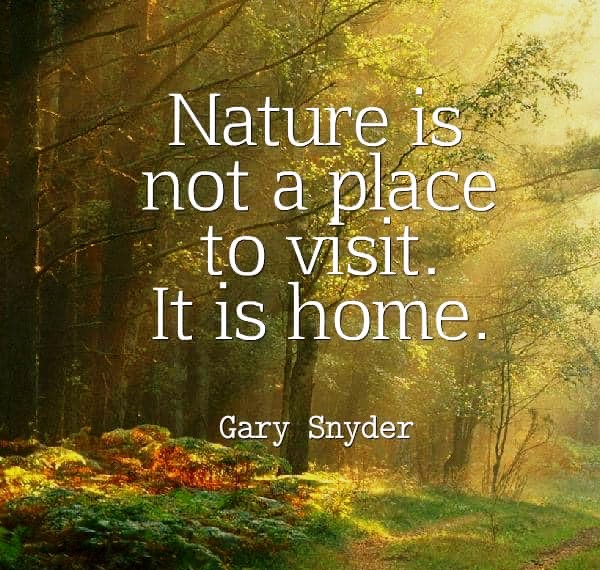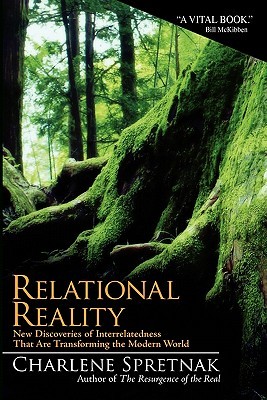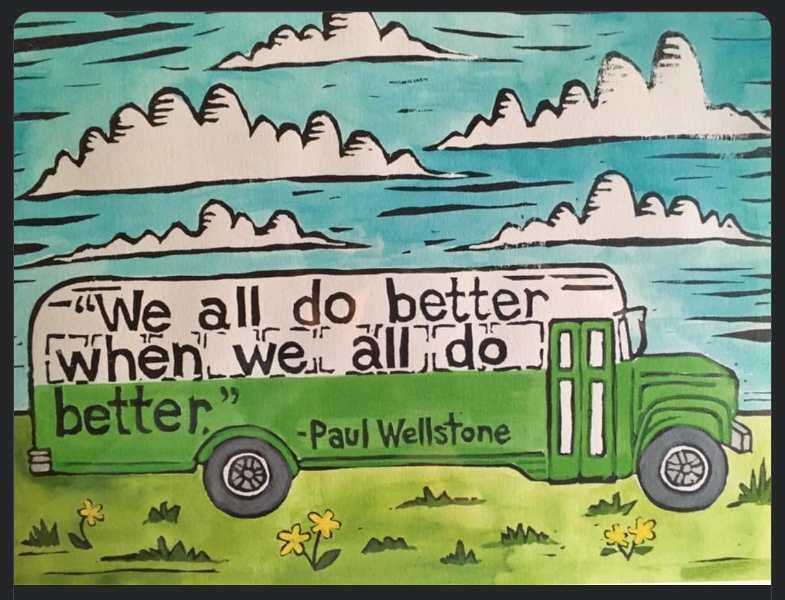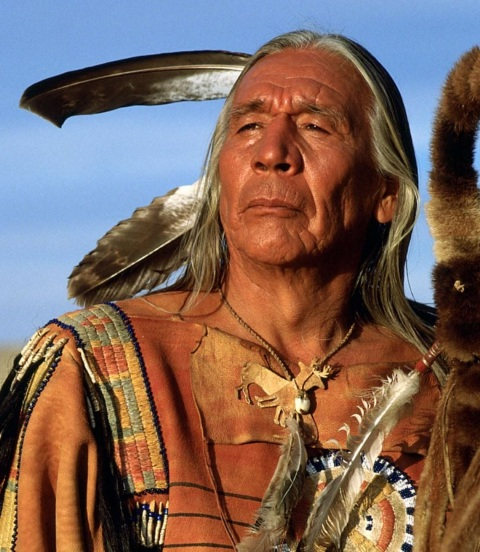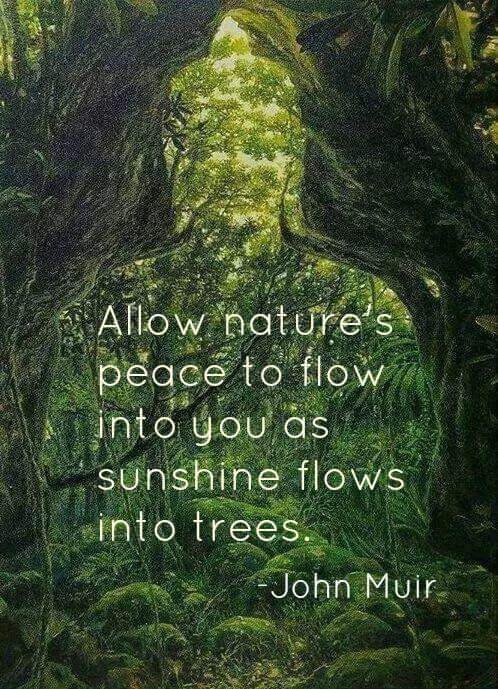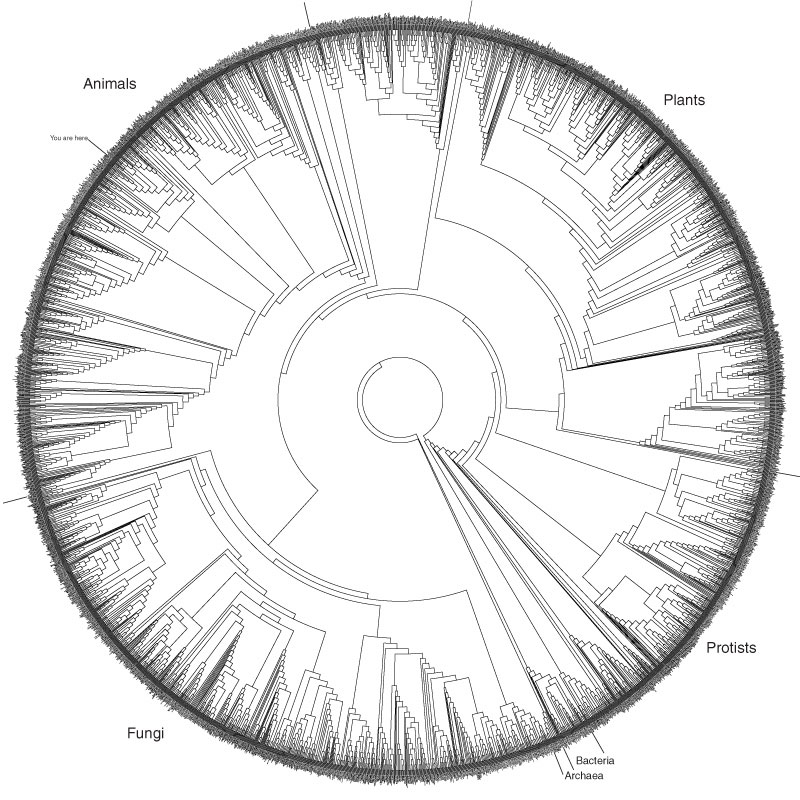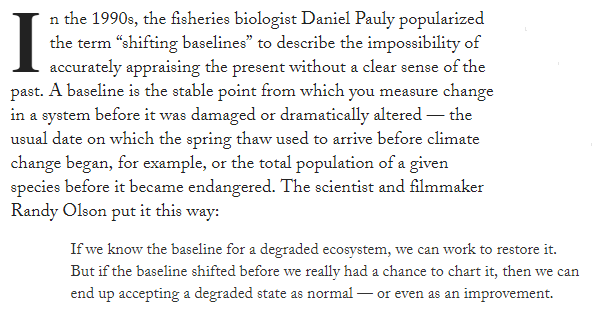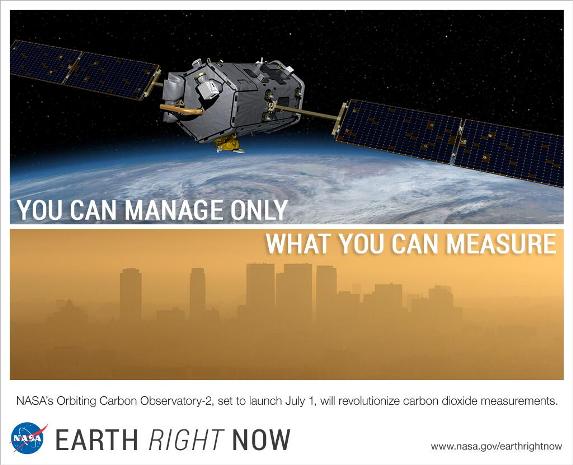Green Quotes
/ A & B
○ “We came all this way to explore the Moon, and the most important thing is that we discovered the Earth." – Bill Anders
Aboard Apollo, December 24, 1968...
* http://www.greenpolicy360.net/w/Apollo_8
○ "About the only thing you can’t do is ignore them. Because they change things. They push the human race forward. And while some may see them as the crazy ones, we see genius. Because the people who are crazy enough to think they can change the world are the ones who do.” -- Apple Computer ad campaign, 1997 (with special call out to Buckminster Fuller) | https://web.archive.org/web/20010228171255/http://www.apple.com/thinkdifferent/
* https://greenpolicy360.net/w/File:Buckminster_and_a_Geodesic_Dome.jpg
○ "The ideal subject of totalitarian rule is not the convinced Nazi or the dedicated communist, but people for whom the distinction between fact and fiction, true and false, no longer exists." "Factuality itself depends for its continued existence upon the existence of the nontotalitarian world." -- Hannah Arendt, "The Origins of Totalitarianism" (1951)... and lectures at the Graduate Faculty of the New School for Social Research, NYC, 1973-75
○ “You could leave life right now. Let that determine what you do and say and think.” -- Marcus Aurelius, "Meditations"
○ “I wanted to know, given what’s going on with this looming environmental crisis, what could we do about it? That’s the basic question... Historically, our society and our civilization have looked at nature as an object and as a physical resource... The shift that’s happening now is instead to look at nature as a mentor and a model and a teacher. That really became the underlying epiphany for me around Bioneers: Just like our bodies, the Earth has a profound capacity for healing, for self-repair, that we barely understand. Our role, in a way, is to work with nature to heal nature — to help Nature heal itself. And that became the most fundamental premise.” -- Kenny Ausubel, Bioneers Conference
○ '"Education is not something you can finish." -- Isaac Asimov
○ "Cette beauté est faite de nuances subtiles, d'un équilibre miraculeux de teintes resplendissantes et douces. Seul un enfant dans son innocence pourrait appréhender la pureté et la splendeur de cette vision." (This beauty consists of subtle nuances, as in the miraculous balance of soft and brilliant hues. Only a child in its innocence could apprehend the purity and splendor of this vision.) -- Astronaut Patrick Baudry describing the Earth from space
Our Biggest Experiment: An Epic History of the Climate Crisis
○ When Ronald Reagan was elected in November 1980, he appointed lawyer James G. Watt to run the Department of the Interior. Watt had headed a legal firm that fought to open public lands for drilling and mining, and already had a reputation for hating conservation projects, as a matter of policy and of faith. He once famously described environmentalism as “a leftwing cult dedicated to bringing down the type of government I believe in”. The head of the National Coal Association pronounced himself “deliriously happy” at the appointment, and corporate lobbyists started joking: “How much power does it take to stop a million environmentalists? One Watt.” -- Alice Bell, Our Biggest Experiment: An Epic History of the Climate Crisis
○ "BETTER TO LIGHT A CANDLE THAN CURSE THE DARKNESS" -- Amnesty International
○ "Perfect is the enemy of good" ("Le meglio è l'inimico del bene") -- Aphorism/Maxim/Voltaire
○ “Economy and environment are the same thing. That is the rule of nature.” -- Mollie Beattie...NYT Obit... Running w/ Wolves & Bears
○ “When we Ask Nature, first we quiet our human cleverness. Then we ask, and then we listen. The answer is the echo that bounces off of the land herself. With the solution in hand, we always end the circle by saying thank you.” -- Janine Benyus
○ “We’re awake now, and the question is how do we stay awake to the living world? How do we make the act of asking nature’s advice a normal part of everyday inventing?” – Janine Benyus -- https://biomimicry.org/janine-benyus/ -- https://www.ted.com/speakers/janine_benyus
○ "You've got to be careful if you don't know where you're going, because you might end up someplace else." -- Yogi Berra
○“The thought of what once was here and is gone forever will not leave me as long as I live. It is as though I walk knee-deep in its absence." -- Wendell Berry
○ “No settled family or community has ever called its home place an “environment.” None has ever called its feeling for its home place “biocentric” or “anthropocentric.” None has ever thought of its connection to its home place as “ecological,” deep or shallow. The concepts and insights of the ecologists are of great usefulness in our predicament, and we can hardly escape the need to speak of “ecology” and “ecosystems.” But the terms themselves are culturally sterile. They come from the juiceless, abstract intellectuality of the universities which was invented to disconnect, displace, and disembody the mind. The real names of the environment are the names of rivers and river valleys; creeks, ridges, and mountains; towns and cities; lakes, woodlands, lanes roads, creatures, and people. And the real name of our connection to this everywhere different and differently named earth is “work.” -- Wendell Berry
○ “Odd as I am sure it will appear to some, I can think of no better form of personal involvement in the cure of the environment than that of gardening." -- Wendell Berry
○ "If the doors of perception were cleansed every thing would appear to man as it is, Infinite. For man has closed himself up, till he sees all things thro' narrow chinks of his cavern." -- William Blake
○ "We can have democracy in this country, or we can have great wealth concentrated in the hands of a few, but we can't have both." -- Louis Brandeis
○ "The arms race is actually killing people without the arms being used." -- Willie Brandt, 1986 (Strategic Demands: The global arms trade and a new nuclear arms race are responsible for deep costs and an always present danger of nuclear catastrophe. The arms trade and war deliver constant conflict and retribution, tens of millions migrating to escape war and poverty, and political hate and strife. Priorities must shift to awareness of common threats, the environmental collapse that science is documenting, atmospheric disruption and climate crisis, the need for education and cooperative actions for the public good. People are dying around the globe as crisis spreads region to region, exacerbated by factors and linkages tied to poverty, extremism, war and eco-collapse. A new vision with new priorities is needed: environmental protection, agreements to control nuclear weapons proliferation, and an eco-nomics for the future.)
○ Florida nature, business are linked - "Natural places and state commerce are linked. We might think of them as separate or even in conflict. But we shouldn't... When we mess with the environment, we mess with the economy." -- Graham Brink
○ “We don't inherit the earth from our ancestors, we borrow it from our children.” -- David Brower
○ “The ancient trees are the deep earth's language for speaking to the universe. The earth communicates through trees to the animals and to the birds living above - and to the very heavens. The trees draw the earth's water up from the ground. Then breathing, they return it to the air for the clouds and the blessed rain that falls to begin the cycle anew. She thinks of the thin layer of living things as a fragile space between earth's molten rock core and the frozen outer universe of stars. The thin layer is like her own life here - precious, finite.” -- J.J. Brown
○ 2019, as the California Governor leaves office:: "I'm a planetary realist. We are linked in this community of people, 7.3, 7.4 billion people whether it's cyber, or the international monetary system, or weather, or disease, or climate change or habitat destruction, or if there's a nuclear war. For the first time in history we're all linked together. So there is a planetary quality to our politics, or there should be." -- Jerry Brown
○ “We have to have enough bandwidth to look at the big issues, because if they get away from us we won’t have the little issues to worry about.” -- Jerry Brown, 2022, Interviewed by the Associated Press and focused on the danger of 'existential issues', climate change and nuclear weapons
○ "The gap between what we need to do to protect our environmental support systems and what we are doing is widening. Unless we redefine security, recognizing that the principal threats to our future come less from the relationship of nation to nation and more from the deteriorating relationship between ourselves and the natural systems and resources on which we depend, then the human prospect could be a bleak one. If we do not act quick, there is a risk that environmental deterioration and social disintegration could begin to feed on each other." -- Lester Brown (Redefining National Security, Worldwatch Institute, 1977)
- "People stand themselves next to the righteous
- They believe the things they say are true
- They speak in terms of what divides us
- To justify the violence they do
- But it is one, it is one
- One world spinning 'round the sun
- Wherever it is you call home
- Whatever country you come from
- It is one"
- -- Jackson Browne, musician, "It is One"
○ “Too often we underestimate the power of a touch, a smile, a kind word, a listening ear, an honest compliment, or the smallest act of caring, all of which have the potential to turn a life around.” ... “There are scores of people waiting for someone just like us to come along; people who will appreciate our compassion, our encouragement, who will need our unique talents. Someone who will live a happier life merely because we took the time to share what we had to give.” -- Remembering Love1 and Leo's hugs, 'Advocate of Love's Power' ... Leo Buscaglia, Education Professor, USC
/ C & D
○ “To try to make the world in some way better than you found it is to have a noble motive in life.” -- Andrew Carnegie
○ "The serious student of earth history knows that neither life nor the physical world that supports it exists in little isolated compartments. On the contrary, he recognizes the extraordinary unity between organisms and the environment. For this reason he knows that harmful substances released into the environment return in time to create problems for mankind.
"The branch of science that deals with these interrelations is Ecology... We cannot think of the living organism alone; nor can we think of the physical environment as a separate entity. The two exist together, each acting on the other to form an ecological complex or ecosystem...." -- Rachel Carson
○ “Those who contemplate the beauty of the earth find reserves of strength that will endure as long as life lasts.” -- Rachel Carson
○ "The more clearly we can focus our attention on the wonders and realities of the universe about us, the less taste we shall have for destruction." -- Rachel Carson, Silent Spring
○ “Like music and art, love of nature is a common language that can transcend political or social boundaries.” -- Jimmy Carter
○ "I have learned that our greatest blessings come when we are able to improve the lives of others, and this is especially true when those others are desperately poor or in need.” -- Jimmy Carter
"Be of service" - from Chef José Andrés
○ "At times like these, it's easy to feel overwhelmed by the scale of the challenges we face, and the speed of each new crisis. But many complex problems have simple solutions. Sometimes you just need to decide to do something. Sometime you just have to show up with a sandwich or some warm rice and beans." -- Chef José Andrés, World Central Kitchen https://wck.org/
🌎
○ "Humanity faces two imminent existential threats: environmental catastrophe and nuclear war. These were virtually ignored in the campaign rhetoric and general coverage. There was plenty of criticism of the Trump administration, but scarcely a word about by far the most ominous positions the administration has taken: increasing the already dire threat of nuclear war, and racing to destroy the physical environment that organized human society needs in order to survive. These are the most critical and urgent questions that have arisen in all of human history. The fact that they scarcely arose in the campaign is truly stunning — and carries some important, if unpleasant, lessons about our moral and intellectual culture." -- Noam Chomsky, November 2018
○ "We believe hope comes from action." -- ClientEarth
○ "There are no boundaries in the real Planet Earth. No United States, no Russia, no China, no Taiwan. Rivers flow unimpeded across the swaths of continents. The persistent tides, the pulse of the sea do not discriminate; they push against all the varied shores on Earth." -- Jacques Yves Cousteau
○ “The sea, once it casts its spell, holds one in its net of wonder forever.” -- Jacques Yves Cousteu
○ "I am one of the 7 billion human beings alive today. We each have a responsibility to think about humanity and the good of the world because it affects our own future. We weren’t born on this planet at this time to create problems but to bring about some benefit." -- Dalai Lama, June 2018
○ "We need to adjust to the planetary ecosystem and master how to live well within it. We need to take note of the mycelial intelligence of nature, learn to live within the intelligence inherent in Gaia. This is a longterm project...but time is short. Get to work friends!" -- Tammy Davis, November 2021
○ "Even as we learned to read the biography of Earth, we have gone far in shredding its most glorious chapter, reducing biodiversity to a degree unknown since the extinction of the dinosaurs. Climate change will accelerate those losses, while producing massive problems of its own. Perhaps the greatest paradox of our time is that, having attained godlike insight, we plow ahead into calamities of our own making…" -- William DeBuys, "The Trail to Kanjiroba"
○ "The sooner we replace fossil fuels with renewables, the more likely we are to have a planet in 2100 that still resembles the one we know and love today." -- Andrew E. Dessler, professor of atmospheric sciences at Texas A&M
○ "Wealthy people in much of the world are insulated from the consequences of their actions." -- Jared Diamond
○ "Unless someone like you cares a whole awful lot, nothing is going to get better. It's not." -- Doctor Seuss, "The Lorax"
○ "There is no wisdom that is not related to earth, or does not partake of its nature." -- Marjory Stoneman Douglas
- ○ ○ ○ ○ ○ ○ ○ ○ ○ ○ ○ ○ ○ ○ ○ ○ ○ ○ ○ ○ ○ ○
Leonardo DiCaprio, our Bioneers friend, takes an Oscar and speaks out...
"Making The Revenant was about man's relationship to the natural world, a world that we collectively felt in 2015 as the hottest year in recorded history. Our production needed to move to the southern tip of this planet just to be able to find snow. Climate change is real. It is happening right now. It's the most urgent threat facing our entire species, and we need to work collectively together and stop procrastinating.
"We need to support leaders around the world who do not speak for the big polluters or the big corporations, but who speak for all of humanity, for the indigenous people of the world, for the billions and billions of underprivileged people who will be most affected by this. For our children's children and for those people out there whose voices have been drowned out by the politics of greed, I thank you all for this amazing award tonight.
"Let us not take this planet for granted. I do not take tonight for granted. Thank you so much."
- ○ ○ ○ ○ ○ ○ ○ ○ ○ ○ ○ ○ ○ ○ ○ ○ ○ ○ ○ ○ ○ ○
/ E
Experiencing Planet Earth from Above
Astronauts / A New Vision of Our Home Planet
○ "No water, no life. No blue, no green!" -- Sylvia Earle
○ “The ecosystems of the ocean are the engine that make Earth livable,” says Sylvia Earle, the pioneering oceanographer and explorer. “But, even now, most people don’t think of the ocean as the headline when they’re talking about climate and environment.” -- Sylvia Earle, 2023
○ "You and I and everybody else alive on the planet today have come along at probably the most important time in human history because we still have options open, right? We still have choices that can take us in a direction that will give us the best chance we'll ever have of a long and enduring future on this little blue miracle that we call Earth. Fifty years ago, and all preceding time before, we did not know, we could not know what we now know, what kids are growing up with, a view of Earth from space, knowing what it's like in the deepest part of the ocean, because we have evidence. People have been there. They've they come back as witnesses." -- Sylvia Earle, 1972 (Interview with Andrew Revkin)
○ "Our separation from each other is an optical illusion... Everything is connected. The greatest tragedy of human existence is the illusion of separateness.” -- Albert Einstein
○ "A human being is part of the whole, called by us “universe,” limited in time and space. He experiences himself, his thoughts and feelings as something separated from the rest – a kind of optical delusion of his consciousness. This delusion is a prison, restricting us to our personal desires and to affection for a few persons close to us. Our task must be to free ourselves from our prison by widening our circle of compassion to embrace all humanity and the whole of nature in its beauty." -- Albert Einstein
○ "Every gun that is made, every warship launched, every rocket fired signifies, in the final sense, a theft from those who hunger and are not fed, those who are cold and are not clothed. The world in arms is not spending money alone. It is spending the sweat of its laborers, the genius of its scientists, the hopes of its children." -- Dwight D. Eisenhower
○ “A wrong attitude towards nature implies, somewhere, a wrong attitude towards God.” -- T.S. Eliot
○ “Almost no single revelation will cause significant change by itself. But in combination with other information—other truth-telling—courage is contagious.” -- Daniel Ellsberg
○ “Hope is not a feeling or an expectation,” he explains of his worldview, which he hews to after witnessing nearly a century’s worth of wars. “It’s a form of acting. I choose to act as if we had a choice to change this behavior, and to change the world for the better and avoid catastrophe.” — Dan Ellsberg, The Nation, March 2021
○ "Madness in individuals is something rare; but in groups, parties, nations, and epochs, it is the rule." -- Daniel Ellsberg, "The Doomsday Machine: Confessions of a Nuclear War Planner"
○ "Every action admits of being outdone. Our life is an apprenticeship to the truth that around every circle another can be drawn; that there is no end in nature, but every end is a beginning..." -- Ralph Waldo Emerson, “Circles” (1841)
○ "#BusinessAsUsual is taking us towards catastrophe! If you don't understand that you are not paying attention." -- Extinction Rebellion @XRebellionUK
○ "On rare occasions the corporate media discusses the climate crisis a question they ask without fail is: ‘how will we pay for it?’ A question they never ask is: ‘how many will die if we don’t?’ It’s almost psychopathic." -- Extinction Rebellion @xr_cambridge, August 2020
/ F
○ “I have a friend who's an artist and has sometimes taken a view which I don't agree with very well. He'll hold up a flower and say "look how beautiful it is," and I'll agree. Then he says "I as an artist can see how beautiful this is but you as a scientist take this all apart and it becomes a dull thing," and I think that he's kind of nutty. First of all, the beauty that he sees is available to other people and to me too, I believe. Although I may not be quite as refined aesthetically as he is ... I can appreciate the beauty of a flower. At the same time, I see much more about the flower ... I could imagine the cells in there, the complicated actions inside, which also have a beauty. I mean it's not just beauty at this dimension, at one centimeter; there's also beauty at smaller dimensions, the inner structure, also the processes. The fact that the colors in the flower evolved in order to attract insects to pollinate it is interesting; it means that insects can see the color. It adds a question: does this aesthetic sense also exist in the lower forms? Why is it aesthetic? All kinds of interesting questions which the science knowledge only adds to the excitement, the mystery and the awe of a flower." -- Richard P. Feynman, The Pleasure of Finding Things Out
GreenPolicy360: Speaking of a flower, beauty, and science -- let us take a moment for an aside, a reveal, a journey into GreenPolicy360, About Us, our sunflower-branded Mediawiki platform, and big-picture thoughts on 'how flowers changed the world' ... aesthetically and practically, imaginatively and scientifically....
GreenPolicy360: Let us begin with a Creative Commons sharing of a visionary scientist, Loren Eisely. A modest man who, in our way of seeing, a "planet citizen" who could see far beyond what most of us see...
How flowers changed the world on Planet Earth, yes, a shared Immense Journey... Begin by picturing millions of years ago when "there were no flowers."
“The truth is, however, that there is nothing very “normal” about nature. Once upon a time there were no flowers at all.”
-- Loren Eiseley, The Immense Journey: An Imaginative Naturalist Explores the Mysteries of Man and Nature
“HOW FLOWERS CHANGED THE WORLD”
From the Immense Journey by Loren Eiseley
If it had been possible to observe the Earth from the far side of the solar system over the long course of geological epochs, the watchers might have been able to discern a subtle change in the light emanating from our planet. That world of long ago would, like the red deserts of Mars, have reflected light from vast drifts of stone and gravel, the sands of wandering wastes, the blackness of naked basalt, the yellow dust of endlessly moving storms. Only the ceaseless marching of the clouds and the intermittent flashes from the restless surface of the sea would have told a different story, but still essentially a barren one. Then, as the millennia rolled away and age followed age, a new and greener light would, by degrees, have come to twinkle across those endless miles.
This is the only difference those far watchers, by the use of subtle instruments, might have perceived in the whole history of the planet Earth. Yet that slowly growing green twinkle would have contained the epic march of life from the tidal oozes upward across the raw and unclothed continents. Out of the vast chemical bath of the sea--not from the deeps, but from the element-rich, light- exposed platforms of the continental shelves-- wandering fingers of green had crept upward along the meanderings of river systems and fringed the gravels of forgotten lakes.
In those first ages plants clung of necessity to swamps and watercourses. Their reproductive processes demanded direct access to water. Beyond the primitive ferns and mosses that enclosed the borders of swamps and streams the rocks still lay vast and bare, the winds still swirled the dust of a naked planet. The grass cover that holds our world secure in place was still millions of years in the future. The green marchers had gained a soggy foothold upon the land, but that was all. They did not reproduce by seeds but by microscopic swimming sperm that had to wriggle their way through water to fertilize the female cell. Such plants in their higher forms had clever adaptations for the use of rain water in their sexual phases, and survived with increasing success in a wet land environment. They now seem part of man's normal environment. The truth is, however, that there is nothing very "normal" about Nature. Once upon a time there were no flowers at all.
A little while ago--about one hundred million years, as the geologist estimates time in the history of our four billion-year-old planet--flowers were not to be found anywhere on the five continents. Wherever one might have looked, from the poles to the equator, one would have seen only the cold dark monotonous green of a world whose plant life possessed no other color.
Somewhere, just a short time before the close of the Age of Reptiles, there occurred a soundless, violent explosion. It lasted millions of years, but it was an explosion, nevertheless. It marked the emergence of the angiosperms--the flowering plants. Even the great evolutionist, Charles Darwin, called them "an abominable mystery," because they appeared so suddenly and spread so fast.
Flowers changed the face of the planet. Without them, the world we know--even man himself--would never have existed.
Francis Thompson, the English poet, once wrote that one could not pluck a flower without troubling a star. Intuitively he had sensed like a naturalist the enormous interlinked complexity of life.
Today we know that the appearance of the flowers contained also the equally mystifying emergence of man. If we were to go back into the Age of Reptiles, its drowned swamps and birdless forests would reveal to us a warmer but, on the whole, a sleepier world than that of today. Here and there, it is true, the serpent heads of bottom-feeding dinosaurs might be upreared in suspicion of their huge flesh-eating compatriots. Tyrannosaurs, enormous bipedal caricatures of men, would stalk mindlessly across the sites of future cities and go their slow way down into the dark of geologic time.
In all that world of living things nothing saw save with the intense concentration of the hunt, nothing moved except with the grave sleepwalking intentness of the instinct-driven brain. Judged by modern standards, it was a world in slow motion, a cold-blooded world whose occupants were most active at noonday but torpid on chill nights, their brains damped by a slower metabolism than any known to even the most primitive of warmblooded animals today.
A high metabolic rate and the maintenance of a constant body temperature are supreme achievements in the evolution of life. They enable an animal to escape, within broad limits, from the overheating or the chilling of its immediate surroundings, and at the same time to maintain a peak mental efficiency. Creatures without a high metabolic rate are slaves to weather. Insects in the first frosts of autumn all run down like little clocks. Yet if you pick one up and breathe warmly upon it, it will begin to move about once more.
In a sheltered spot such creatures may sleep away the winter, but they are hopelessly immobilized. Though a few warm-blooded mammals, such as the woodchuck of our day, have evolved a way of reducing their metabolic rate in order to undergo winter hibernation, it is a survival mechanism with drawbacks, for it leaves the animal helplessly exposed if enemies discover him during his period of suspended animation. Thus bear or woodchuck, big animal or small, must seek, in this time of descending sleep, a safe refuge in some hidden den or burrow. Hibernation is, therefore, primarily a winter refuge of small, easily concealed animals rather than of large ones.
A high metabolic rate, however, means a heavy intake of energy in order to sustain body warmth and efficiency. It is for this reason that even some of these later warm-blooded mammals existing in our day have learned to descend into a slower, unconscious rate of living during the winter months when food may be difficult to obtain. On a slightly higher plane they are following the procedure of the cold-blooded frog sleeping in the mud at the bottom of a frozen pond.
The agile brain of the warm-blooded birds and mammals demands a high oxygen consumption and food in concentrated forms, or the creatures cannot long sustain themselves. It was the rise of the flowering plants that provided that energy and changed the nature of the living world. Their appearance parallels in a quite surprising manner the rise of the birds and mammals.
Slowly, toward the dawn of the Age of Reptiles, something over two hundred and fifty million years ago, the little naked sperm cells wriggling their way through dew and raindrops had given way to a kind of pollen carried by the wind. Our present-day pine forests represent plants of a pollen-disseminating variety. Once fertilization was no longer dependent on exterior water, the march over drier regions could be extended. Instead of spores, simple primitive seeds carrying some nourishment for the young plant had developed, but true flowers were still scores of millions of years away. After a long period of hesitant evolutionary groping, they exploded upon the world with truly revolutionary violence.
The event occurred in Cretaceous times in the close of the Age of Reptiles. Before the coming of the flowering plants our own ancestral stock, the warm-blooded mammals, consisted of a few mousy little creatures hidden in trees and underbrush. A few lizard-like birds with carnivorous teeth flapped awkwardly on ill-aimed flights among archaic shrubbery. None of these insignificant creatures gave evidence of any remarkable talents. The mammals in particular had been around for some millions of years, but had remained well lost in the shadow of the mighty reptiles. Truth to tell, man was still, like the genie in the bottle, encased in the body of a creature about the size of a rat.
As for the birds, their reptilian cousins the Pterodactyls, flew farther and better. There was just one thing about the birds that paralleled the physiology of the mammals. They, too, had evolved warm blood and its accompanying temperature control. Nevertheless, if one had been seen stripped of his feathers, he would still have seemed a slightly uncanny and unsightly lizard.
Neither the birds nor the mammals, however, were quite what they seemed. They were waiting for the Age of Flowers. They were waiting for what flowers, and with them the true encased seed, would bring. Fish-eating, gigantic leather-winged reptiles, twenty-eight feet from wing tip to wing tip, hovered over the coasts that one day would be swarming with gulls.
Inland the monotonous green of the pine and spruce forests with their primitive wooden cone flowers stretched everywhere. No grass hindered the fall of the naked seeds to earth. Great sequoias towered to the skies. The world of that time has a certain appeal but it is a giant's world, a world moving slowly like the reptiles who stalked magnificently among the boles of its trees.
The trees themselves are ancient, slow-growing and immense, like the redwood groves that have survived to our day on the California coast. All is stiff, formal, upright and green, monotonously green. There is no grass as yet; there are no wide plains rolling in the sun, no tiny daisies dotting the meadows underfoot. There is little versatility about this scene; it is, in truth, a giant's world.
-=-
A few nights ago it was brought home vividly to me that the world has changed since that far epoch. I was awakened out of sleep by an unknown sound in my living room. Not a small sound--not a creaking timber or a mouse's scurry -- but a sharp, rending explosion as though an unwary foot had been put down upon a wine glass.
I had come instantly out of sleep and lay tense, unbreathing. I listened for another step. There was none.
Unable to stand the suspense any longer, I turned on the light and passed from room to room glancing uneasily behind chairs and into closets. Nothing seemed disturbed, and I stood puzzled in the center of the living room floor. Then a small button-shaped object upon the rug caught my eye. It was hard and polished and glistening. Scattered over the length of the room were several more shining up at me like wary little eyes. A pine cone that had been lying in a dish had been blown the length of the coffee table. The dish itself could hardly have been the source of the explosion. Beside it I found two ribbon-like strips of a velvety green. I tried to place the two strips together to make a pod. They twisted resolutely away from each other and would no longer fit.
I relaxed in a chair, then, for I had reached a solution of the midnight disturbance. The twisted strips were wisteria pods that I had brought in a day or two previously and placed in the dish. They had chosen midnight to explode and distribute their multiplying fund of life down the length of the room. A plant, a fixed, rooted thing, immobilized in a single spot, had devised a way of propelling its offspring across open space. Immediately there passed before my eyes the million airy troopers of the milkweed pod and the clutching hooks of the sandburs. Seeds on the coyote's tail, seeds on the hunter's coat, thistledown mounting on the winds--all were somehow triumphing over life's limitations. Yet the ability to do this had not been with them at the beginning. It was the product of endless effort and experiment.
The seeds on my carpet were not going to lie stiffly where they had dropped like their antiquated cousins, the naked seeds on the pine-cone scales. They were travelers. Struck by the thought, I went out next day and collected several other varieties. I line them up now in a row on my desk -- so many little capsules of life, winged, hooked or spiked. Everyone is an angiosperm, a product of the true flowering plants. Contained in these little boxes is the secret of that far-off Cretaceous explosion of a hundred million years ago that changed the face of the planet. And somewhere in here, I think, as I poke seriously at one particularly resistant seedcase of a wild grass, was once man himself.
When the first simple flower bloomed on some raw upland late in the Dinosaur Age, it was wind pollinated, just like its early pine-cone relatives. It was a very inconspicuous flower because it had not yet evolved the ideal of using the surer attraction of birds and insects to achieve the transportation of pollen. It sowed its own pollen and received the pollen of other flowers by the simple vagaries of the wind. Many plants in regions where insect life is scant still follow this principle today. Nevertheless, the true flower--and the seed that it produced--was a profound innovation in the world of life.
In a way, this event parallels, in the plant world, what happened among animals. Consider the relative chance for survival of the exteriorly deposited egg of a fish in contrast with the fertilized egg of a mammal, carefully retained for months in the mother's body until the young animal (or human being) is developed to a point where it may survive. The biological wastage is less--and so it is with the flowering plants. The primitive spore, a single cell fertilized in the beginning by a swimming sperm, did not promote rapid distribution, and the young plant, moreover, had to struggle up from nothing. No one had left it any food except what it could get by its own unaided efforts.
By contrast, the true flowering plants (angiosperm itself means "encased seed") grew a seed in the heart of a flower, a seed whose development was initiated by a fertilizing pollen grain independent of outside moisture. But the seed, unlike the developing spore, is already a fully equipped embryonic plant packed in a little enclosed box stuffed full of nutritious food. Moreover, by featherdown attachments, as in dandelion or milkweed seed, it can be wafted upward on gusts and ride the wind for miles; or with hooks it can cling to a bear's or a rabbit's hide; or like some of the berries, it can be covered with a juicy attractive fruit to lure birds, pass undigested through their intestinal tracts and be voided miles away.
The ramifications of this biological invention were endless. Plants traveled as they had never traveled before. They got into strange environments heretofore never entered by the old spore plants or stiff pine-cone-seed plants. The well-fed, carefully cherished little embryos raised their heads everywhere. Many of the older plants with more primitive reproductive mechanisms began to fade away under this unequal contest. They contracted their range into secluded environments. Some, like the giant redwoods, lingered on as relics; many vanished entirely.
The world of the giants was a dying world. These fantastic little seeds skipping and hopping and flying about the woods and valleys brought with them an amazing adaptability. If our whole lives had not been spent in the midst of it, it would astound us. The old, stiff, sky-reaching wooden world had changed into something that glowed here and there with strange colors, put out queer, unheard-of fruits and little intricately carved seed cases, and, most important of all, produced concentrated foods in a way that the land had never seen before, or dreamed of back in the fish-eating, leaf-crunching days of the dinosaurs.
-=-
That food came from three sources, all produced by the reproductive system of the flowering plants. There were the tantalizing nectars and pollens intended to draw insects for pollenizing purposes, and which are responsible also for that wonderful jeweled creation, the hummingbird. There were the juicy and enticing fruits to attract larger animals, and in which tough-coated seeds were concealed, as in the tomato, for example. Then, as if this were not enough, there was the food in the actual seed itself, the food intended to nourish the embryo. All over the world, like hot corn in a popper, these incredible elaborations of the flowering plants kept exploding. In a movement that was almost instantaneous, geologically speaking, the angiosperms had taken over the world.
Grass was beginning to cover the bare earth until, today, there are over six thousand species. All kinds of vines and bushes squirmed and writhed under new trees with flying seeds.The explosion was having its effect on animal life also. Specialized groups of insects were arising to feed on the new sources of food and, incidentally and unknowingly, to pollinate the plant. The flowers bloomed and bloomed in ever larger and more spectacular varieties. Some were pale unearthly night flowers intended to lure moths in the evening twilight, some among the orchids even took the shape of female spiders in order to attract wandering males, some flamed redly in the light of noon or twinkled modestly in the meadow grasses. Intricate mechanisms splashed pollen on the breasts of hummingbirds, or stamped it on the bellies of black, grumbling bees droning assiduously from blossom to blossom. Honey ran, insects multiplied, and even the descendants of that toothed and ancient lizard-bird had become strangely altered. Equipped with prodding beaks instead of biting teeth they pecked the seeds and gobbled the insects that were really converted nectar.
Across the planet grasslands were now spreading. A slow continental upthrust which had been a part of the early Age of Flowers had cooled the world's climates. The stalking reptiles and the leather-winged black imps of the seashore cliffs had vanished. Only birds roamed the air now, hot-blooded and high-speed metabolic machines.
The mammals, too, had survived and were venturing into new domains, staring about perhaps a bit bewildered at their sudden eminence now that the thunder lizards were gone. Many of them, beginning as small browsers upon leaves in the forest, began to venture out upon this new sunlit world of the grass. Grass has a high silica content and demands a new type of very tough and resistant tooth enamel, but the seeds taken incidentally in the cropping of the grass are highly nutritious. A new world had opened out for the warm-blooded mammals. Great herbivores like the mammoths, horses and bisons appeared. Skulking about them had arisen savage flesh feeding carnivores like the now extinct dire wolves and the saber-toothed tiger.
Flesh eaters though these creatures were, they were being sustained on nutritious grasses one step removed. Their fierce energy was being maintained on a high, effective level, through hot days and frosty nights, by the concentrated energy of the angiosperms. That energy, thirty per cent or more of the weight of the entire plant among some of the cereal grasses, was being accumulated and concentrated in the rich proteins and fats of the enormous game herds of the grasslands.
On the edge of the forest, a strange, old-fashioned animal still hesitated. His body was the body of a tree dweller, and though tough and knotty by human standards, he was, in terms of that world into which he gazed, a weakling. His teeth, though strong for chewing on the tough fruits of the forest, or for crunching an occasional unwary bird caught with his prehensile hands, were not the tearing sabers of the great cats. He had a passion for lifting himself up to see about, in his restless, roving curiosity. He would run a little stiffly and uncertainly, perhaps, on his hind legs, but only in those rare moments when he ventured out upon the ground. All this was the legacy of his climbing days; he had a hand with flexible fingers and no fine specialized hoofs upon which to gallop like the wind.
If he had any idea of competing in that new world, he had better forget it; teeth or hooves, he was much too late for either. He was a ne'er-do-well, an in-betweener. Nature had not done well by him. It was as if she had hesitated and never quite made up her mind. Perhaps as a consequence he had a malicious gleam in his eye, the gleam of an outcast who has been left nothing and knows he is going to have to take what he gets. One day a little band of these odd apes--for apes they were--shambled out upon the grass; the human story had begun.
Apes were to become men, in the inscrutable wisdom of nature, because flowers had produced seeds and fruits in such tremendous quantities that a new and totally different store of energy had become available in concentrated form. Impressive as the slow-moving, dim-brained dinosaurs had been, it is doubtful if their age had supported anything like the diversity of life that now rioted across the planet or flashed in and out among the trees. Down on the grass by a streamside, one of those apes with inquisitive fingers turned over a stone and hefted it vaguely. The group clucked together in a throaty tongue and moved off through the tall grass foraging for seeds and insects. The one still held, sniffed, and hefted the stone he had found. He liked the feel of it in his fingers. The attack on the animal world was about to begin.
If one could run the story of that first human group like a speeded-up motion picture through a million years of time, one might see the stone in the hand change to the flint ax and the torch. All that swarming grassland world with its giant bison and trumpeting mammoths would go down in ruin to feed the insatiable and growing numbers of a carnivore who, like the great cats before him, was taking his energy indirectly from the grass. Later he found fire and it altered the tough meats and drained their energy even faster into a stomach ill adapted for the ferocious turn man's habits had taken.
His limbs grew longer, he strode more purposefully over the grass. The stolen energy that would take man across the continents would fail him at last. The Great Ice Age herds were destined to vanish. When they did so, another hand like the hand that grasped the stone by the river long ago would pluck a handful of grass seed and hold it contemplatively.
In that moment, the golden towers of man, his swarming millions, his turning wheels, the vast learning of his packed libraries, would glimmer dimly there in the ancestor of wheat, a few seeds held in a muddy hand. Without the gift of flowers and the infinite diversity of their fruits, man and bird, if they had continued to exist at all, would be today unrecognizable. Archaeopteryx, the lizard-bird, might still be snapping at beetles on a sequoia limb; man might still be a nocturnal insectivore gnawing a roach in the dark. The weight of a petal has changed the face of the world and made it ours.
• https://www.eiseley.org/reviews/dderrick-immensejourney.php
• https://www.nebraskabooksource.com/products/the-loren-eiseley-reader
The first daisies may have flourished while dinosaurs still walked the Earth, researchers report in the Proceedings of the National Academy of Sciences. Evidence from tiny grains of fossilized pollen suggests that the Asteraceae flower family, which includes daisies, chrysanthemums and sunflowers, is 20 million years older than previously suspected, writes Jonathan Tilley for HortWeek.
• https://www.pnas.org/content/early/2015/08/05/1423653112
The flowering plant family Asteraceae (e.g. sunflowers, daisies, chrysanthemums), with about 23,000 species, is found almost everywhere in the world except in Antarctica.
Asteraceae (or Compositae) are regarded as one of the most influential families in the diversification and evolution of a large number of animals that heavily depends on their inflorescences to survive (e.g. bees, hummingbirds, wasps). Here we report the discovery of pollen grains unambiguously assigned to Asteraceae that remained buried in Antarctic deposits for more than 65 million years along with other extinct groups (e.g. Dinosaurs, Ammonites). Our discovery drastically pushes back the assumed origin of Asteraceae, because these pollen grains are the oldest fossils ever found for the family.
🌎
○ "Quite frankly, there is no answer to climate change without substantially, dramatically, increasing the amount of renewable energy in the global energy system." -- Christiana Figueres
○ "A Republic, if you can keep it." -- Benjamin Franklin
We are recalling a quote of Benjamin Franklin responding to a question in 1787 about the newly announced birth of the US as he left Independence Hall after the Constitutional Convention: We have "a Republic, if you can keep it."
○ "We are going to have to find ways of organizing ourselves cooperatively, sanely, scientifically, harmonically and in regenerative spontaneity with the rest of humanity around the earth.... We are not going to be able to operate our spaceship earth successfully nor for much longer unless we see it as a whole spaceship and our fate as common." -- Buckminster Fuller
○ "I seem to be a verb." -- Buckminster Fuller
/ G
○ "I am part and parcel of the whole and cannot find God apart from the rest of humanity." -- Mahatma Gandhi
○ "Be the change you want to see in the world." -- Mahatma Gandhi
Going Green ○ Generation Green
○ "When we look down at the earth from space, we see this amazing, indescribably beautiful planet. It looks like a living, breathing organism. But it also, at the same time, looks extremely fragile... Anybody else who's ever gone to space says the same thing because it really is striking and it's really sobering to see this paper-thin layer and to realize that that little paper-thin layer is all that protects every living thing on Earth from death, basically. From the harshness of space." — Ron Garan, Astronauts in Space
○ "In the end, we do what we can, when we must, and hope it makes a difference." -- Dan Gillmore https://dangillmor.com/about/
○ "I am an optimist because I know that there is the possibility of change if people really care to make it happen. And that's important, because I never could have done what I did if there hadn't been a groundswell of women in the late 60s and throughout the 70s wanting to tear down the barriers — wanting to free both women and men to be you and me, to follow your own talents as far as they could take you." -- Ruth Bader Ginsburg
○ "Whatever you can do or dream you can, begin it. Boldness has genius, power and magic in it!" -- Johann Wolfgang von Goethe
○ "Everything is connected, and everyone can make a difference. The greatest danger to our future is apathy." -- Dr. Jane Goodall
○ "If we carry on with business as usual, we're going to destroy ourselves" -- Jane Goodall / CBS 2020 - Climate-Coronavirus-Environment Interview
○ "You cannot get through a single day without having an impact on the world around you. What you do makes a difference, and you have to decide what kind of a difference you want to make." -- Jane Goodall
○ "Alone we go fast, together we go farther." -- Great Green Wall of Africa, Proverb
○ "The decayed conditions of American democracy is difficult to grasp, not because the facts are secret, but because the facts are visible everywhere." -- William Greider, Who Will Tell the People (1992)
○ On the horror of listening to journalists and media talk about how covering climate change is a 'ratings killer'... "I felt like I was in some horror movie where I knew something terrible was happening but everyone was going about their lives in this surreal, almost zombified fashion.” -- Dr. Genevieve Guenther
○ "In true Orwellian fashion, the Republicans want to gut scientific research, suppress the production of knowledge, and force us to "ignore the evidence of our eyes and ears." -- Dr. Genevieve Guenther
/ H & I
○ "We're all crewmates on the same ship - Earth." -- In space, Music Video by Astronaut Chris Hadfield...
○ "Our own life has to be our message." -- Thích Nhất Hạnh, "The Miracle of Mindfulness", "Peace is Every Step", "Love Letter to the Earth"
- ... Buddha, Dharma and Sangha
- Wakefulness, reality and community
- Skandhas ...
- Body, Feelings, Perceptions, Mental Formations and Consciousness
- Avalokiteshvara
- while practicing deeply with
- the Insight that Brings Us to the Other Shore,
- suddenly discovered that
- all of the five Skandhas are equally empty,
- and with this realisation
- he overcame all Ill-being.
- Thay: Gentle reminder nothing arises independently of anything else
- A Eulogy to Thay
- You have shown us how to wake up and fall in love with the Earth, so we may protect and heal her with all our heart. We may spend our whole lives trying :to keep up with you, dear Thay, and your vision for a future that is possible — a future whose foundation you have built step by step, breath by breath, page by page. -- Plum Village, 2022
○ “I find the people who think we are doomed to be very tiring and unhelpful.” Catastrophic outcomes can be avoided “if we are smart, and I think we are capable of being smart.” -- James Hansen
○ “In spite of the string of magazine covers announcing the contrary, we all know that ten simple things will not save the earth. There are, rather, three thousand impossible things that all of us must do, and changing our light bulbs, while necessary, is the barest beginning. We are being called upon to act against a prevailing culture, to undermine our own entrenched tendency to accumulate and to consume, and to refuse to define our individuality by our presumed ability to do whatever we want.” -- Lyanda Lynn Haupt, Crow Planet: Essential Wisdom from the Urban Wilderness and Urban Bestiary
○ Genuine politics is "simply a matter of serving those around us, serving the community, and serving those who will come after us." -- Vaclav Havel
○ "The bottom line is this: to care about climate change, we only have to be one thing and that's a human living on this planet. And we're all that." -- Katharine Hayhoe
○ “When we have learned how to listen to trees, then the brevity and the quickness and the childlike hastiness of our thoughts achieve an incomparable joy.” -- Hermann Hesse
○ "How can we fret and stew sub specie aeternitatis - under the calm gaze of ancient Tao? The salt of the sea is in our blood; the calcium of the rocks is in our bones; the genes of ten thousand generations of stalwart progenitors are in our cells. The sun shines and we smile. The winds rage and we bend before them. The blossoms open and we rejoice. Earth is our long home." -- Stewart W. Holmes
○ "When we love the earth, we are able to love ourselves more fully. I believe this. The ancestors taught me it was so... I expressed wonder and awe at the magic of growing things." -- bell hooks
○ "Everywhere I go, people want to feel more connected. They want to feel more connected to their neighbors. They want to feel more connected to the world. And when we learn that through love we can have that connection, we can see the stranger as ourselves. And I think that it would be absolutely fantastic to have that sense of 'Let's return to kind of a utopian focus on love, not unlike the sort of hippie focus on love.' Because I always say to people, you know, the '60s' focus on love had its stupid sentimental dimensions, but then it had these life-transforming dimensions. When I think of the love of justice that led three young people, two Jews and one African American Christian, to go to the South and fight for justice and give their lives — Goodman, Chaney and Schwerner — I think that's a quality of love that's awesome. ... I tell this to young people, you know, that we can love in a deep and profound way that transforms the political world in which we live in." -- bell hooks
○ "A beheading is worse than a sunburn." -- Mike Huckabee, in a May 2017 interview on Fox News, touting President Trump’s priorities as combating terrorism and the "historic" arms deals with Saudi Arabia instead of addressing climate change.
○ "Facts do not cease to exist because they are ignored." -- Aldous Huxley, "Complete Essays, Vol. II: 1926-1929"
○ "Listen to the people who are talking about how to fix what's wrong, not the ones who just work people into a snit over the problems. Listen to the people who have ideas about how to fix things, not the ones who just blame others." -- Molly Ivins
/ J
○ "We have one earth; now we must learn to see our earth as one world – the only home for all of life on earth. That is our challenge." -- Richard Jacobs, Tierra Verde, Florida
○ “The people who are crazy enough to think they can change the world are the ones that do.” -- Steve Jobs
○ "I’ve failed over and over and over again in my life and that is why I succeed." -- Michael Jordan
○ "Where love rules, there is no will to power and where power predominates, love is lacking. The one is the shadow of the other." -- Carl G. Jung
/ K
○ "We are... at a place where the light of the beginning can no longer be seen, and the light of the end is so very small a glimmer that the gaze must continually search for it and is always losing it again." -- Franz Kafka
○ "Look closely. The beautiful may be small." -- Immanuel Kant
○ "Out of the crooked timber of humanity, no straight thing was ever made." -- Immanuel Kant
○ “True teachers are those who use themselves as bridges over which they invite their students to cross; then, having facilitated their crossing, joyfully collapse, encouraging them to create their own.” -- Nikos Kazantzakis
○ “The purpose of life is to contribute in some way to making things better.” -- Robert Kennedy
○ "It is from numberless diverse acts of courage and belief that human history is shaped each time a man stands up for an ideal or acts to improve the lot of others or strikes out against injustice. He sends forth a tiny ripple of hope, and crossing each other from a million different centers of energy and daring, those ripples build a current that can sweep down the mightiest wall of oppression and resistance." -- Robert Kennedy, "Ripple of Hope" speech, Day of Affirmation Address, Capetown, June, 1966
Sister Corita Kent, On living life to your full potential
"Corita Kent, also known as Sister Mary Corita, was an artist with an innovative approach to design and education. By the 1960s, her vibrant serigraphs were drawing international acclaim. Corita’s work reflected her concerns about poverty, racism, and war, and her messages of peace and social justice" ... visit the Corita Art Center - IHM community @ https://www.corita.org/
○ “When all the trees have been cut down and all the animals have been hunted to extinction, when all the waters are polluted and the air is unsafe to breathe, only then will you discover you cannot eat money.” -- Sherilynn Kenyon
○ “Cowardice asks the question, is it safe? Expediency asks the question, is it politic? Vanity asks the question, is it popular? But conscience ask the question, is it right? And there comes a time when we must take a position that is neither safe, nor politic, nor popular, but one must take it because it is right.” -- Martin Luther King Jr
○ "The hope of a secure and livable world lies with disciplined non-conformists, who are dedicated to justice, peace and brotherhood. The trailblazers in human, academic, scientific, and religious freedom have always been non-conformists." -- Martin Luther King Jr
○ "If you lose hope, somehow you lose the vitality that keeps life moving, you lose that courage to be, that quality that helps you go on in spite of it all. And so today I still have a dream." -- Martin Luther King Jr
○ “Right now, in the amazing moment that to us counts as the present, we are deciding, without quite meaning to, which evolutionary pathways will remain open and which will forever be closed. No other creature has ever managed this and it will, unfortunately, be our most enduring legacy.” -- Elizabeth Kolbert
○ "After an orange cloud -- formed as a result of a dust storm over the Sahara and caught up by air currents -- reached the Philippines and settled there with rain, I understood that we are all sailing in the same boat." -- Astronaut Vladimir Kovalyonok
○ “To give back more than what was given…” -- Alan Kozlowski, on his life philosophy learned from his teacher, Ravi Shankar
○ "I think we're in a new era where the advancing tide is towards human unity, where people all around the world want to come together. The United States is in a position where it can lead the way towards that and it can do it in practical ways by affirming the power of the United Nations so that the international process makes decisions on international security." -- Dennis Kucinich, former US Congress representative
/ L
○ "Whether we have wings or fins, or roots or paws... we are all relatives." -- Winona LaDuke, Ojibwe
○ “One of our fundamental teachings is that in all our actions we consider the impact it will have on seven generations. Think about what it would mean to have a worldview that could last a thousand years, instead of the current corporate mindset that can’t see beyond the next quarterly earnings statement.” -- Winona LaDuke, Anishinaabe activist and former US Green Party candidate for vice president... 'Seventh Generation' Thinking
○ "Aristippus said that a wise man's country was the world." -- Diogenes Laertius, 13 xiii, Circa 200 A.D.
○ "Be kind whenever possible. It is always possible." -- Dalai Lama
○ “We got rich by violating one of the central tenets of economics: thou shall not sell off your capital and call it income. And yet over the past 40 years we have clear-cut the forests, fished rivers and oceans to the brink of extinction and siphoned oil from the earth as if it possessed an infinite supply. We've sold off our planet's natural capital and called it income. And now the earth, like the economy, is stripped.” -- Kalle Lasn, Adbusters
○ "We reached the old wolf in time to watch a fierce green fire dying in her eyes. I realized then, and have known ever since, that there was something new to me in those eyes - something known only to her and to the mountain. I was young then, and full of trigger-itch; I thought that because fewer wolves meant more deer, that no wolves would mean hunters' paradise. But after seeing the green fire die, I sensed that neither the wolf nor the mountain agreed with such a view…" -- Aldo Leopold, A Sand County Almanac with Other Essays on Conservation from Round River
○ "The land ethic simply enlarges the boundaries of the community to include soils, waters, plants, and animals, or collectively: the land... In short, a land ethic changes the role of Homo sapiens from conqueror of the land-community to plain member and citizen of it. It implies respect for his fellow-members, and also respect for the community as such.” -- Aldo Leopold
- (The ecocentric ethic was conceived by Aldo Leopold and recognizes that all species, including humans, are the product of a long evolutionary process and are inter-related in their life processes. -- https://en.wikipedia.org/wiki/Ecocentrism)
○ “When you see something that is not right, you must say something ... Democracy is not a state. It is an act, and each generation must do its part.” -- John Lewis
○ "You cannot escape the responsibility of tomorrow by evading it today.” –- Abraham Lincoln
○ "I have probably looked at as many pictures from space as anybody... so I knew exactly what [I] was going to see... There was no intellectual preparation I hadn't made. But there is no way you can be prepared for the emotional impact. It was a moving enough experience that it brought tears to my eyes." -- Astronaut Don L. Lind
○ "We are already well into a new geological era, the Anthropocene, where human interference is the dominant factor in nearly every planetary ecosystem, to the detriment of perhaps all of them." -- Mark Lynas, Six Degrees
○ "We are looking ahead, as is one of the first mandates given us as chiefs, to make sure and to make every decision that we make relate to the welfare and well-being of the seventh generation to come.... What about the seventh generation? Where are you taking them? What will they have?" -- Oren Lyons, Chief of the Onondaga Iroquois Nation, speaks of ancient wisdom
Chief Lyons, as a Bioneer, a Planet Citizen - http://www.bioneers.org/staff/chief-oren-lyons/ - https://www.greenpolicy360.net/w/Seventh_Generation
- "The Roots of American Democracy" (w/ Video)
/ M & N
○ "My dear Mr. Jimmy Wing, the only victory is existence, and the only defeat is extermination. When a species cannot survive, it is defeated. We must keep mankind from making the planet unsuitable for existence without technology.. In the criminal campaign against fire ants in this country, the poisoners have slain an estimated five thousand tons of small birds. Tons, Mr. Wing. Thirty to forty million in specific areas... This was nonselective elimination, taking the healthy and sick, the predators and sapsuckers, destroying not only that generation but all possible subsequent ones from that conglomerate of basic strains. It is a thoughtless ecological abomination, Mr. Wing. It is like rubbing out one factor in a vastly complex equation. Due to the interrelationship of bird life, insect life and plant fertilization, the known characteristics of that area will change. To what? We do not know. We only know it will be different. I recognize a deity of interrelationships, of checks and balances and dependencies. Acts such as this are like spitting in the face of God. It is a dangerous temerity, Mr. Wing. It is, in its essence, stupidity, nonknowing, the most precarious condition of man. Filling in this bay is part of the same pattern of throwing away everything you do not understand." -- John D. MacDonald, "A Flash of Green", 1962
○ “The true character of a society is revealed by how it treats its children.” -- Nelson Mandela
○ "The modern 24-hour news cycle is unkind to challenges—like the climate crisis — which require diligence and concerted action, day after day, week after week, year after year.” -- Michael E. Mann
○ "Tolerance becomes a crime when applied to evil." -- Thomas Mann, "The Magic Mountain"
○ "With science plus action, things can get better." -- Kate Marvel
○ "There's no such thing as waste in nature. One thing's waste is another thing's food. #CradletoCradle outlines a biological metabolism where products are consumed, used and re-consumed in natural systems or return to industry in the technological metabolism." -- William McDonough
○ "The Question I Get Asked the Most?" The most common one by far is also the simplest: 'What can I do?' I bet I've been asked it 10,000 times by now... 'What can I do to make a difference?' The right question is 'What can we do to make a difference?' " -- Bill McKibben
○ "If we don’t win very quickly on climate change, then we will never win. That’s the core truth about global warming. It’s what makes it different from every other problem our political systems have faced." -- Bill McKibben
○ "I've never confused dissent with the lack of patriotism; if anything, just the opposite. You know the people I was talking about showed their patriotism by dissenting from big power." -- Bill McKibben
○ "There are no passengers on spaceship earth. We are all crew." -- Marshall McLuhan
○ "We cannot live only for ourselves. A thousand fibers connect us with our fellow men; and among those fibers, as sympathetic threads, our actions run as causes, and they come back to us as effects." -- Herman Melville
○ "Be kind-- to other humans, to animals, and to the amazing planet we live on." -- Ron Merkord
○ "Why do we have to spend our lives striving to be something that we would never want to be, if only we knew what we wanted? Why do we waste our time doing things, which, if we only stopped to think about them, are just the opposite of what we were made for?" -- Thomas Merton
○ "We are all bound together in an inescapable web of the living ecosystem, and religion concerns how we knowingly bind ourselves to the larger whole which sustains all life." -- Rev. Dr. Russell L. Meyer, Florida Council of Churches
○ "In outer space you develop an instant global consciousness, a people orientation, an intense dissatisfaction with the state of the world, and a compulsion to do something about it. From out there on the moon, international politics look so petty. You want to grab a politician by the scruff of the neck and drag him a quarter of a million miles out and say, 'Look at that, you son of a bitch'." -- Edgar Mitchell, Apollo Astronaut
○ “I was gazing out of the window, at the Earth, moon, sun and star-studded blackness of space in turn as our capsule slowly rotated... Gradually, I was flooded with the ecstatic awareness that I was a part of what I was observing. Every molecule in my body was birthed in a star hanging in space. I became aware that everything that exists is part of one intricately interconnected whole.” -- Edgar Mitchell, Apollo Astronaut speaking of the "Overview Effect"
- "And I dreamed I saw the bombers
- Riding shotgun in the sky
- And they were turning into butterflies
- Above our nation
- We are stardust
- Billion year old carbon
- We are golden"
- -- Joni Mitchell
○ ○ ○ ○ ○ ○ ○ ○ ○ ○ ○ ○ ○ ○ ○
Bill Mollison quotes --- Permaculture
○ ○ ○ ○ ○ ○ ○ ○ ○ ○ ○ ○ ○ ○ ○ ○ ○ ○ ○ ○ ○ ○ ○ ○ ○ ○ ○ ○ ○
○ “Governments are deemed to succeed or fail by how well they make money go round, regardless of whether it serves any useful purpose. They regard it as a sacred duty to encourage the country’s most revolting spectacle: the annual feeding frenzy in which shoppers queue all night, then stampede into the shops, elbow, trample and sometimes fight to be the first to carry off some designer junk which will go into landfill before the sales next year. The madder the orgy, the greater the triumph of economic management.” -- George Monbiot
○ “A tree is alive, and thus it is always more than you can see. Roots to leaves, yes-those you can, in part, see. But it is more-it is the lichens and moss and ferns that grow on its bark, the life too small to see that lives among its roots, a community we know of, but do not think on. It is every fly and bee and beetle that uses it for shelter or food, every bird that nests in its branches. Every one an individual, and yet every one part of the tree, and the tree part of every one.” -- Elizabeth Moon
○ "When we try to pick anything out by itself, we find it hitched to everything else in the universe." -- John Muir
- "Of all the paths you take in life, make sure a few of them are dirt." -- John Muir
○ “Regarding the question as to climate change, I think the President was fairly straightforward — We’re not spending money on that anymore; we consider that to be a waste of your money to go out and do that.” -- Mick Mulvaney, President Trump’s budget director, March 17, 2017
○ "We’re running the most dangerous experiment in history right now, which is to see how much carbon dioxide the atmosphere can handle before there is an environmental catastrophe.”
- "The greater the change to the chemical composition of the physical, chemical makeup of the oceans and atmosphere [due to increased carbon emissions], the greater the long-term effect will be... [W]hy would you run this crazy experiment to see how bad it'll be? We know it's at least some bad, and the overwhelming scientific consensus is that it'll be 'really bad'."
- "As far as Earth is concerned, I think the biggest problem that humanity faces is one of sustainable energy. If we don’t solve that problem this century, independent of any environmental concerns, we will face economic collapse… This is obvious." -- Elon Musk
○ "The peyote hunt provides one version of the fulfillment of a panhuman quest—the desire for total unity among all creatures and all people—and accordingly we find in it significance beyond the specificity of Huichol religion and world view." Barbara Myerhoff interpreted this rite to be a recovery of the Huichol peoples' original condition of oneness; she viewed this quest as universal and understood the Peyote Hunt to be one example among many "returns to paradise." -- Dr. Barbara Myerhoff, Anthropology Professor, USC
○ "Security concerns can no longer be confined to traditional ideas of soldiers and tanks, bombs and missiles. Increasingly they include environmental resources that underpin our material welfare. These resources include soil, water, forests, and climate, all prime components of a nation's environmental foundations." -- Norman Myers, Ultimate Security: The Environmental Basis of Political Stability
○ "To understand and protect our home planet; to explore the universe and search for life; to inspire the next generation of explorers ... as only NASA can." -- NASA Original Mission Statement (1958)
○ "Our goal is not just an environment of clean air and water and scenic beauty. The objective is an environment of decency, quality and mutual respect for all other human beings and all other living creatures." -- Gaylord Nelson, US Senator
○ "Plato is my friend, Aristotle is my friend, but my greatest friend is truth." -- Sir Isaac Newton. Newton Papers, Cambridge Library
○ “Our life is composed greatly from dreams, from the unconscious, and they must be brought into connection with action. They must be woven together.” -- Anaïs Nin
○ "Music melts all the separate parts of our bodies together." -- Anaïs Nin
○ “For me, walking in a hard Dakota wind can be like staring at the ocean: humbled before its immensity, I also have a sense of being at home on this planet, my blood so like the sea in chemical composition, my every cell partaking of air. I live about as far from the sea as is possible in North America, yet I walk in a turbulent ocean. Maybe that child was right when he told me that the world is upside-down here, and this is where angels drown.” -- Kathleen Norris, Dakota: A Spiritual Geography
○ “The power of the atom in my view may be God's ultimate test of mankind. Our challenge is clear but awesome.” -- Sam Nunn, Nuclear Weapons / NTI https://t.co/GQ29nU9Jbk
/ O & P
Let us bless The Imagination of the Earth. That knew early the patience To harness the mind of time, Waited for the seas to warm, Ready to welcome the emergence Of things dreaming of voyaging Among the stillness of land.
Let us thank the Earth That offers ground for home And holds our feet firm To walk in space open To Infinite galaxies.
Let us ask forgiveness of the Earth, Opening to receive Our worn forms Into the final stillness.
-- John O’Donohue: Excerpts of Praise of the Earth
🌎
○ "In such ugly times, the only true protest is beauty." -- Phil Ochs
○ "Whoever you are, no matter how lonely,
the world offers itself to your imagination,
calls to you like the wild geese, harsh and exciting -
over and over announcing your place in the family of things." -- Mary Oliver
○ "I don’t know exactly what a prayer is.
I do know how to pay attention, how to fall down
into the grass, how to kneel down in the grass,
how to be idle and blessed, how to stroll through the fields,
which is what I have been doing all day.
Tell me, what else should I have done?
Doesn’t everything die at last, and too soon?
Tell me, what is it you plan to do
with your one wild and precious life?" -- Mary Oliver
○ "Hope is a verb with its shirtsleeves rolled up." -- David Orr
○ "The greatest discovery of the past century... (or more accurately the rediscovery) was of an ancient premonition -- that we are part of a vast web of life, one large evolving system that has many of the characteristics of a living organism. We live, as Ralph Waldo Emerson once described, in the lap of great intelligence. We are kith and kin to all that was, all there is, and all that will ever be. For all of our puffed up self-importance, we are only upstart primates occupying one small booth on the outskirts of a vast, turbulent, ongoing bazaar of living, evolving sentience located on a minuscule planet attached to a third-rate star somewhere in a backwater galaxy in a sea of billions of other galaxies speeding toward some unknown destination." -- David Orr
○ “The point is that the pleasures of spring are available to everybody, and cost nothing.” -- George Orwell, "Some Thoughts on the Common Toad"
○ "The world is my country, all mankind are my brethren, and to do good is my religion." -- Thomas Paine
○ "Dans les champs de l'observation, le hasard ne favorise que les esprits préparés" ("In the field of observation, chance favors only the prepared mind") -- Louis Pasteur
○ "What you leave behind is not what is engraved in stone monuments, but what is woven into the lives of others." (translated from classical Greek - ἡ μνήμη ἡ σή οὐκ εστι τῶν στηλῶν μόνον ἐπιγραφή, ἐστί δε ἡ τῶν ἀνδρῶν μνήμη) -- Pericles
○ “The people are what matter to government... and a government should aim to give all the people under its jurisdiction the best possible life.” -- Frances Perkins, Secretary of Labor under U.S. President Franklin Roosevelt
○ “There is always a large horizon... There is much to be done. It is up to you to contribute some small part to a program of human betterment for all time.” -- Frances Perkins
○ “No matter how many toys we amass we leave them behind when we die, just as we leave a broken environment, an economy that only benefits the richest, and a legacy of empowering greed over goodness. It is now time to commit to following a new path.” -- John Perkins
○ “Be kind, for everyone you know is fighting a great battle.” -- Philo, ancient philosopher of Alexandria, Egypt
○ "I think that we’ve become very disconnected from the natural world and many of us, what we’re guilty of is an egocentric worldview — the belief that we’re the center of the universe." -- Joaquin Phoenix, Speech at the #Oscars2020
○ “We must never forget that the natural environment is a collective good, the patrimony of all humanity and the responsibility of everyone.” -- Pope Francis, Catholic Pontiff
○ “We must not be indifferent or resigned to the loss of biodiversity and the destruction of ecosystems, often caused by our irresponsible and selfish behaviour... Because of us, thousands of species will no longer give glory to God by their very existence … We have no such right.” -- Pope Francis, "World Day of Prayer", 2016
○ "In Laudato Si', I call for a courageous and responsible effort to 'redirect our steps', and to avert the most serious effects of the environmental deterioration caused by human activity. I am convinced that we can make a difference and I have no doubt that the United States – and this Congress – have an important role to play." -- Pope Francis, Speech to the U.S. Congress, Sept 2015
/ Q & R
○ "Our goals are the same as those of the U.N.'s founders, who sought to replace a world at war with one where the rule of law would prevail, where human rights were honored, where development would blossom, where conflict would give way to freedom from violence." -- Ronald Reagan, Address by the US President to the UN General Assembly
○ "We’ll have a bumpy ride through this century, and we’ll be lucky to avoid major setbacks to our civilization — setbacks which, in our interconnected world, will cascade globally. The concerns are of two kinds. The first is the risk of crossing ecological tipping points, due to the stresses imposed by the collective impacts of a larger, more empowered and more demanding population on land use, climate stability, and so forth. The second category of concerns are the threats stemming from the misuse, by error or by design, of new technologies such as bio, cyber, IT, and AI." -- Martin Rees, British astrophysicist; Author, "Our Final Hour: A Scientist’s Warning: How Terror, Error, and Environmental Disaster Threaten Humankind’s Future in This Century — on Earth and Beyond"
○ “When you don’t have facts, you can’t have truth...
- When you don’t have truth, you can’t have trust.
- When you can’t have a shared reality, you can’t have democracy.
- You can’t have any kind of meaningful interaction to solve the existential problems we face.”
- -- Maria Ressa
○ “When social media platforms amplify lies & recommend liars, facts are drowned in a flood of falsehoods & doubt, eroding democracy in a tide of truth decay. If facts lose in every country around the world—and that is what’s at stake—we will lose truth. Without truth, you can’t have trust. Without these, any shared human endeavor is impossible, & that includes democracy." -- Maria Ressa, Nobel Peace Prize
○"Once again, we are at a time of testing. How it comes out rests, as it always has, in our hands." Heather Cox Richardson, "Democracy Awakening: Notes on the State of America" (2023)
○ "Sometimes when I’m asked to describe the Buddhist teachings, I say this: Everything is connected; nothing lasts; you are not alone. This is really just a restatement of the traditional Three Marks of Existence: non-self, impermanence, and suffering. The fact that we all suffer means we are all in the same boat, and that’s what allows us to feel compassion." -- Lewis Richmond
○ “It is not the critic who counts; not the man who points out how the strong man stumbles, or where the doer of deeds could have done them better. The credit belongs to the man who is actually in the arena, whose face is marred by dust and sweat and blood; who strives valiantly; who errs, who comes short again and again, because there is no effort without error and shortcoming; but who does actually strive to do the deeds; who knows great enthusiasms, the great devotions; who spends himself in a worthy cause; who at the best knows in the end the triumph of high achievement, and who at the worst, if he fails, at least fails while daring greatly, so that his place shall never be with those cold and timid souls who neither know victory nor defeat.” -- Theodore 'Teddy' Roosevelt, 1910
○ "The most beautiful people we have known are those who have known defeat, known suffering, known struggle, known loss, and have found their way out of those depths." -- Elisabeth Kubler-Ross
○ “What’s the use of having developed a science well enough to make predictions, if in the end all we’re willing to do is stand around and wait for them to come true?” -- F. Sherwood Rowland to the New Yorker, 1986, about CFCs and Ozone Depletion before the Montreal Protocol is adopted
○ "Love is wise, hatred is foolish. In this world, which is getting more and more closely interconnected, we have to learn to tolerate each other. We have to learn to put up with the fact that some people say things that we don’t like. We can only live together in that way, and if we are to live together and not die together, we must learn a kind of charity and a kind of tolerance which is absolutely vital to the continuation of human life on this planet." -- Bertrand Russell, interview with the BBC's Face-to-Face Program, December 1959
/ S
○ "Above all, I have been a sentient being, a thinking animal, on this beautiful planet, and that in itself has been an enormous privilege and adventure.” -- Oliver Sacks
○ "Human history can be viewed as a slowly dawning awareness that we are members of a larger group. Initially our loyalties were to ourselves and our immediate family, next, to bands of wandering hunter-gatherers, then to tribes, small settlements, city-states, nations. We have broadened the circle of those we love. We have now organized what are modestly described as super-powers, which include groups of people from divergent ethnic and cultural backgrounds working in some sense together--surely a humanizing and character building experience. If we are to survive, our loyalties must be broadened further, to include the whole human community, the entire planet Earth. Many of those who run the nations will find this idea unpleasant. They will fear the loss of power. We will hear much about treason and disloyalty. Rich nation-states will have to share their wealth with poor ones. But the choice, as H. G. Wells once said in a different context, is clearly the universe or nothing." -- Carl Sagan, Cosmos
○ "Our loyalties are to the species and the planet. We speak for Earth. Our obligation to survive is owed not just to ourselves but also to that Cosmos, ancient and vast, from which we spring." -- Carl Sagan, Cosmos
- More Cosmos quotes from Sagan at GoodReads
○ "Look again at that dot. That's here. That's home. That's us. On it everyone you love, everyone you know, everyone you ever heard of, every human being who ever was, lived out their lives. The aggregate of our joy and suffering, thousands of confident religions, ideologies, and economic doctrines, every hunter and forager, every hero and coward, every creator and destroyer of civilization, every king and peasant, every young couple in love, every mother and father, hopeful child, inventor and explorer, every teacher of morals, every corrupt politician, every "superstar," every "supreme leader," every saint and sinner in the history of our species lived there - on a mote of dust suspended in a sunbeam.
"The Earth is a very small stage in a vast cosmic arena. Think of the rivers of blood spilled by all those generals and emperors, so that, in glory and triumph, they could become the momentary masters of a fraction of a dot. Think of the endless cruelties visited by the inhabitants of one corner of this pixel on the scarcely distinguishable inhabitants of some other corner, how frequent their misunderstandings, how eager they are to kill one another, how fervent their hatreds.
"Our posturings, our imagined self-importance, the delusion that we have some privileged position in the Universe, are challenged by this point of pale light. Our planet is a lonely speck in the great enveloping cosmic dark. In our obscurity, in all this vastness, there is no hint that help will come from elsewhere to save us from ourselves."
-- Carl Sagan, Pale Blue Dot
○ “Quand on a terminé sa toilette du matin, il faut faire soigneusement la toilette de la planète.” -- Antoine de Saint-Exupéry, The Little Prince
○ "In the end, our society will be defined not only by what we create, but what we refuse to destroy." -- John C. Sawhill, Nature Conservancy
○ "Unnoticed, much of the extinction in our era is of small species, lesser known, unknown and unconsidered species, whether in the rich biospheres of the oceans, rainforests, soils or within all of life, the micro-organisms are at risk and in peril. -- Steven Schmidt
○ "We are beginning to realize the extent of an existential experiment humanity is conducting in the atmosphere of the planet, the "Thin Blue Layer". The Anthropocene era is a gathering storm that is changing 'nature' as nature used to be... Our challenge is to use our native intelligence to protect the life-enabling atmosphere, to make decisions that sustain and benefit life today and for future generations." -- Steven Schmidt
○ "Infinite growth of material consumption in a finite world is an impossibility." -- E.F. Schumacher
○ "I want to be thoroughly used up when I die, for the harder I work, the more I live. I rejoice in life for its own sake. Life is no brief candle to me. It is a sort of splendid torch, which I've got held up for the moment, and I want to make it burn as brightly as possible before handing it on to future generations." -- George Bernard Shaw
○ “In nature's economy the currency is not money, it is life.” -- Vandana Shiva, Earth Democracy: Justice, Sustainability, and Peace
○ "It's not an investment if its destroying the planet." -- Vandana Shiva
○ "When I listen with my heart, I am pierced with an empathic awareness that calls me into action beyond what any amount of learning, reading or mental understanding can prompt." -- Nina Simons, Shifting Guidance from Head to Heart, #bioneers15
○ "My race needs no special defense, for the past history of them in this country proves them to be the equal of any people anywhere. All they need is an equal chance in the battle of life." (1895) -- Robert Smalls
○ "It is hard to imagine a free market in a real world, and certainly not in Washington where 35,000 corporate lobbyists work hard to make sure the market is anything but free..." -- Sam Smith, Washington DC, 2005
○ “David had been photographing endangered species in the Hawaiian rainforest and elsewhere for years, and his collections of photographs and Suzie's tarot cards seemed somehow related. Because species disappear when their habitat does, he photographed them against the nowhere of a black backdrop (which sometimes meant propping up a black velvet cloth in the most unlikely places and discouraging climates), and so each creature, each plant, stood as though for a formal portrait alone against the darkness. The photographs looked like cards too, card from the deck of the world in which each creature describes a history, a way of being in the world, a set of possibilities, a deck from which cards are being thrown away, one after another. Plants and animals are a language.... Like cards, flora and fauna could be read again and again, not only alone but in combination, in the endlessly shifting combinations of a nature that tells its own stories and colors ours, a nature we are losing without even knowing the extent of that loss.” -- Rebecca Solnit, A Field Guide to Getting Lost
○ "There are really only two questions for activists: what do you want to achieve? And who do you want to be? And those two questions are deeply entwined. Every minute of every hour of every day you are making the world, just as you are making yourself, and you might as well do it with generosity and kindness and style. That is the small ongoing victory on which great victories can be built, and you do want victories, don't you?" -- Rebecca Solnit, July 4, 2016
○ "Peace is not an absence of war, it is a virtue, a state of mind, a disposition for benevolence, confidence, justice." -- Spinoza
○ "Cultivating the habit of thinking relationally -- because physical reality is more profoundly interrelated than we can ever grasp -- changes the way we experience and shape life in the modern world. Alive to the actual relational, dynamic nature of life in the Earth Community, we become aware of endless possibilities." -- Charlene Spretnak, Relational Reality
○ "We in the fast-paced, hypermodern societies do not have all the answers. We can barely form the questions anymore. It seems self-evident, at least, that productive activity should reflect the larger and deeper relational values of a culture. The concept of 'the economy' in isolation is a pathetic reduction. Seeing 'the economy' as operating on top of nature is delusional. Allowing 'the economy' to rule all else is madness." -- Charlene Spretnak, Relational Reality
○ "We travel together, passengers on a little spaceship, dependent on its vulnerable reserves of air and soil … preserved from annihilation only by the care, the work and, I will say, the love we give our fragile craft." -- Adlai Stevenson
○ "Viewing the Earth from space, you see a singleness and unity to it all that we never perceive in the press of daily life. It seems such a vivid unity that surely it must be rooted some reality, and you wonder why this unity isn't more the reality of everyday human life on earth. You wonder if it could ever be so unified, and you return determined to do whatever you can to make it so - even a bit." -- Astronaut Kathryn Sullivan
/ T & U
○ "The circle is a reminder that each moment is not just the present, but is inclusive of our gratitude to the past and our responsibility to the future." -- Kazuaki Tanahashi
○ "The evolution of the Western mind has been driven by a heroic impulse to forge an autonomous rational human self, by separating it from the primordial unity with nature. To do this, the masculine mind has repressed the feminine... [and] all which the masculine has identified as the other. The crisis of modern man is essentially a masculine crisis. This is the great challenge of our time, the evolutionary imperative for the masculine to choose to enter into a fundamentally new relationship of mutuality with the feminine in all its forms. An epochal shifting is taking place in the contemporary psyche: a sacred marriage between the long-dominant but now alienated masculine, and the long-suppressed but now ascending feminine." Richard Tarnas, The Passion of the Western Mind
○ “If you want to find the secrets of the universe, think in terms of energy, frequency and vibration.” -- Nikola Tesla
○ "What good is a house, if you haven't got a decent planet to put it on?" -- Henry David Thoreau
○ “Every morning was a cheerful invitation to make my life of equal simplicity, and I may say innocence, with Nature herself.” -- Henry David Thoreau, Walden
○ “Wildness is the preservation of the World.” -- Henry David Thoreau, Walking
○ "My humanity is bound up in yours, for we can only be human together." -- Archbishop Desmond Tutu
○ "To sustain life on our small planet, we will need a wider, all-encompassing planetary resource ethic based on values implemented by mutual cooperation. This ethic must be rooted in the most intrinsic values of all: Caring, sharing, and mutual efforts that reach beyond all obstacles and boundaries." -- Stewart Udall
○ “The challenges that your generation faces will test your ingenuity and generosity. Your eyes will scan horizons that human beings have never contemplated. Whether you are a person of faith who believes the Earth is the Lord’s and the fullness thereof, whether you are an individual who has had mystical experiences that link you to the network of eternity, or whether you are a fervent conservationist who wants to leave a legacy for your progeny, the earth needs your devotion and tender care.” -- Stewart Udall in Santa Fe, NM
○ “Go well, do well, my children! Support all endeavors that promise a better life for the inhabitants of our planet. Cherish sunsets, wild creations, and wild places. Have a love affair with the wonder and beauty of the earth!” -- Stewart Udall, A Letter to my Grandchildren, Christmas 2009
/ V, W, X, Y, Z
○ "Most people walking around in a mall or on a college campus are carrying on them better technology than the entire U.S. government had when it put a man on the moon. Each one of us is a walking technological superpower.... Given the capacities available to us, our wildest dreams and biggest hopes are probably too small." -- Van Jones, The Green Collar Economy
○ "We live in the United States of amnesia." -- Gore Vidal
○ "Certainement qui est en droit de vous rendre absurde, est en droit de vous rendre injuste." ('Certainly anyone who has the power to make you believe absurdities has the power to make you commit injustices') -- Voltaire (pen name of François-Marie Arouet, translated from 1765 “Collection des Lettres sur les Miracles”)
○ In 2006 a high school English teacher asked students to write a famous author and ask for advice. Kurt Vonnegut was the only one to respond ... here is Kurt's thoghts 'On Becoming'
“Dear Xavier High School, and Ms. Lockwood, and Messrs Perin, McFeely, Batten, Maurer and Congiusta:
I thank you for your friendly letters. You sure know how to cheer up a really old geezer (84) in his sunset years. I don’t make public appearances any more because I now resemble nothing so much as an iguana.
What I had to say to you, moreover, would not take long, to wit: Practice any art, music, singing, dancing, acting, drawing, painting, sculpting, poetry, fiction, essays, reportage, no matter how well or badly, not to get money and fame, but to experience becoming, to find out what’s inside you, to make your soul grow.
Seriously! I mean starting right now, do art and do it for the rest of your lives. Draw a funny or nice picture of Ms. Lockwood, and give it to her. Dance home after school, and sing in the shower and on and on. Make a face in your mashed potatoes. Pretend you’re Count Dracula.
Here’s an assignment for tonight, and I hope Ms. Lockwood will flunk you if you don’t do it: Write a six line poem, about anything, but rhymed. No fair tennis without a net. Make it as good as you possibly can. But don’t tell anybody what you’re doing. Don’t show it or recite it to anybody, not even your girlfriend or parents or whatever, or Ms. Lockwood. OK?
Tear it up into teeny-weeny pieces, and discard them into widely separated trash receptacals. You will find that you have already been gloriously rewarded for your poem. You have experienced becoming, learned a lot more about what’s inside you, and you have made your soul grow.
God bless you all!" -- Kurt Vonnegut
○ "Another flaw in the human character is that everybody wants to build and nobody wants to do maintenance." -- Kurt Vonnegut
○ Walking in Beauty
- In beauty I walk
- With beauty before me I walk
- With beauty behind me I walk
- With beauty above me I walk
- With beauty around me I walk
- It has become beauty again.
- Hózhóogo naasháa doo
- Shitsijí’ hózhóogo naasháa doo
- Shikéédéé hózhóogo naasháa doo
- Shideigi hózhóogo naasháa doo
- T’áá altso shinaagóó
- Hózhóogo naasháa doo
-- Navajo/Diné Blessing Way Ceremony
○ “We all do better when we all do better.” -- Paul Wellstone
○ "Politics is not about power. Politics is not about money. Politics is not about winning for the sake of winning. Politics is about the improvement of people's lives." -- Senator Paul Wellstone
○ Eudora Welty on On E.B. White’s “Charlotte’s Web”:
Eudora Welty’s review of this timeless tale is a sheer delight, starting from its headline (“Life in the Barn Was Very Good”) and its first sentence (“E.B. White has written his book for children, which is nice for us older ones as it calls for big type”). Unlike contemporary reviews that get future classics “wrong,” Welty — who worked briefly as an editor at the Book Review during World War II — saw this accomplishment clear in the moment. “What the book is about is friendship on earth, affection and protection, adventure and miracle, life and death, trust and treachery, pleasure and pain, and the passing of time,” she wrote. “As a piece of work it is just about perfect, and just about magical in the way it is done.”
○ “We were told that we would see America come and go. In a sense America is dying, from within, because they forgot the instructions of how to live on earth. It's the Hopi belief, it's our belief, that if you are not spiritually connected to the earth, and understand the spiritual reality of how to live on earth, it's likely that you will not make it. Everything is spiritual, everything has a spirit, everything was brought here by the Creator, the ONE CREATOR. Some people call him God, some people call him Buddha, some people call him Allah, some people call him other names. We call him Tunkaschila... Grandfather. We are here on earth only a few winters, then we go to the spirit world. The spirit world is more real then most of us believe. The spirit world is everything. Over 95% of our body is water. In order to stay healthy you've got to drink good water... Water is sacred, air is sacred. Our DNA is made out of the same DNA as the tree, the tree breaths what we exhale, we need what the tree exhales. So we have a common destiny with the tree. We are all from the earth, and when earth, the water, the atmosphere is corrupted then it will create its own reaction. The mother is reacting. In the Hopi prophecy they say the storms and floods will become greater. To me, it's not a negative thing to know that there will be great changes. It's not negative, its evolution. When you look at it as evolution, it's time, nothing stays the same. You should learn how to plant something. That is the first connection. You should treat all things as spirit, realize that we are one family. It's never something like the end. It's like life, there is no end to life...” -- Red Crow Westerman
○ “I arise in the morning torn between a desire to improve (or save) the world and a desire to enjoy (or savor) the world. This makes it hard to plan the day.” -- E. B. White
○ "The eyes of the future are looking back at us and they are praying for us to see beyond our own time." -- Terry Tempest Williams
○ “Humanity is a biological species, living in a biological environment, because like all species, we are exquisitely adapted in everything: from our behavior, to our genetics, to our physiology, to that particular environment in which we live. The earth is our home. Unless we preserve the rest of life, as a sacred duty, we will be endangering ourselves by destroying the home in which we evolved, and on which we completely depend.” -- Edward O. Wilson
○ “I always felt a responsibility to do something right that was religious in intensity. I think it’s possible to have a secular, scientific view of the Earth, particularly its living part, nature. If we protect that then we’ll be protecting our own future, and together we can find potentially eternal existence.” -- E. O. Wilson
○ "Humankind faces two great threats. The first is that of a nuclear exchange. Let us hope it remains no more than a diminishing prospect for the future. The second is that of environmental ruin worldwide — and far from being a prospect for the future, it is a fact right now." -- "Our Common Future", World Commission on Environment and Development, 1987
○ "Turning and turning in the widening gyre
- The falcon cannot hear the falconer;
- Things fall apart; the centre cannot hold;
- Mere anarchy is loosed upon the world,
- The blood-dimmed tide is loosed, and everywhere
- The ceremony of innocence is drowned;
- The best lack all conviction, while the worst
- Are full of passionate intensity.
- Surely some revelation is at hand;
- Surely the Second Coming is at hand.
- The Second Coming! Hardly are those words out
- When a vast image out of Spiritus Mundi
- Troubles my sight: somewhere in sands of the desert
- A shape with lion body and the head of a man,
- A gaze blank and pitiless as the sun,
- Is moving its slow thighs, while all about it
- Reel shadows of the indignant desert birds.
- The darkness drops again; but now I know
- That twenty centuries of stony sleep
- Were vexed to nightmare by a rocking cradle,
- And what rough beast, its hour come round at last,
- Slouches towards Bethlehem to be born?"
- -- "The Second Coming", William Butler Yeats
“There is no try. There is only do or do not do.” -- Yoda
○ ○ ○ ○ ○ ○ ○ ○ ○ ○ ○ ○ ○ ○ ○ ○ ○ ○
○ ○ ○ ○ ○ ○ ○ ○ ○ ○ ○ ○ ○ ○ ○ ○ ○ ○
- ○ ○ ○ ○ ○ ○ ○ ○ ○ ○ ○ ○ ○ ○ ○ ○ ○ ○
"You can manage only what you can measure." -- NASA, Earth Right Now Program
- Anthropocene
- Biodiversity
- Bioneers
- Climate Change
- Climate Policy
- Citizen Science
- Democracy
- Earth Law
- Earth Observations
- Earth Science
- Earth System Science
- Eco-ethics
- Eco-nomics
- Eco-Quotes
- Eco-Spirituality
- Eco-Theology
- Ecology Studies
- Economic Justice
- Education
- Environmental Full-cost Accounting
- Environmental Protection
- Environmental Security
- Environmental Security, National Security
- EOS eco Operating System
- Externalities
- Green Best Practices
- GreenPolicy360
- Green Politics
- Human Rights
- Land Ethic
- Maps
- NASA
- Nature
- Natural Rights
- Networking
- New Space
- Planet Citizen
- Planet Citizens
- Planet Scientist
- Planet Citizens, Planet Scientists
- Social Justice
- Strategic Demands
- Sustainability
- Sustainability Policies
- ThinBlueLayer
- Whole Earth
- Youth
